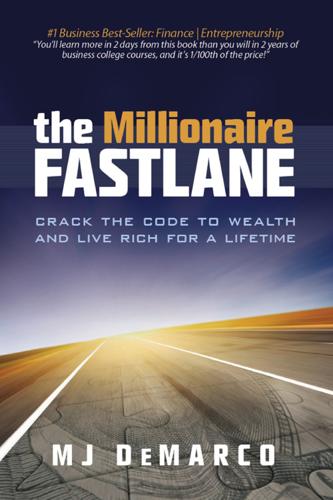
The Millionaire Fastlane: Crack the Code to Wealth and Live Rich for a Lifetime
by
Mj Demarco
Published 8 Nov 2010
For money to follow “Do what you love,” your love must solve a need and you must be exceptional at it. “Do what you love” sets the stage for crowded marketplaces with depressed margins. When you have the financial resources, you can “do what you love” and not get paid for it, nor do you have to be good at it. Slowlaners feed “do what you love” with “do what you hate.” Five days of hate for two days of love. “Doing what you love” for money can endanger your love. Passion for an end goal, a why, drives Fastlane success. Having a passionate “why” can transform work into joy. “Doing what you love” usually leads to the violation of the Commandment of Need.
…
Offer the world value, and money becomes magnetized to you! “Do What You Love” and Die as You Do Beware of another guru-speak: “Do what you love and the money will follow!” Bullshit. That is, unless you want to violate the Commandment of Need. “Do what you love” is another mythical decree perpetrated by hypocritical gurus and so-called life coaches who are probably three clients away from broke. Sadly, the road of “do what you love” rarely converges with wealth. In fact, it might lead you down a road to destructive love. If you're like me, “do what you love” was never an option. Think about what you love and then think, will someone pay for it?
…
He pays “do what you hate” with a weekend of boating, which is his “do what you love.” Then other people negotiate with “do what you love” into an alternative, or a derivative. For example, Pauline loves to knit, so she sells her knitting online. Jose loves automotive audio so he opens a car stereo shop. Janice loves to sculpt and sells her works at the local gallery. Gary is an avid bodybuilder so he becomes a personal trainer. There are two dangers to derivatives: They don't make money fast. They endanger the love. First, “do what you love” rarely creates money fast because more than likely, not only are YOU doing what you love but thousands of others love doing the same thing too (just tune into the first-week auditions for American Idol for proof).
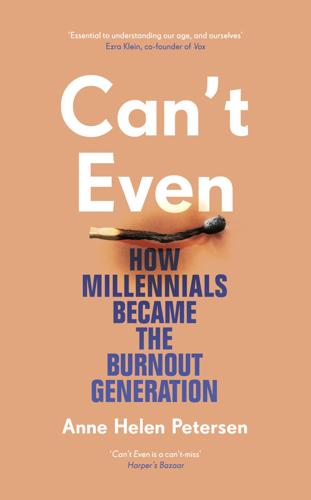
Can't Even: How Millennials Became the Burnout Generation
by
Anne Helen Petersen
Published 14 Jan 2021
The shittier the work, the higher the chances it gets affixed with a “cool” job title and ad—a means of convincing the applicant that an uncool job is indeed desirable and thus worth accepting the barely livable wage. That’s the logic of “Do what you love” in action. Of course, no worker asks their employer to value them less, but the rhetoric of “Do what you love” makes asking to be valued seem like the equivalent of unsportsmanlike conduct. Doing what you love “exposes its adherents to exploitation, justifying unpaid or underpaid work by throwing workers’ motivations back at them,” Tokumitsu argues, “when passion becomes the socially accepted motivation for working, talk of wages or responsible scheduling becomes crass.”3 Take the example of Elizabeth, who identifies as a white Latina and grew up middle class in Florida.
…
Malcolm Harris, Kids These Days: Human Capital and the Making of Millennials (New York: Little, Brown and Company, 2017). 7. Ibid. 4. Do What You Love and You’ll Still Work Every Day for the Rest of Your Life 1. Amanda Mull, “America’s Job Listings Have Gone Off the Deep End,” Atlantic, June 13, 2019. 2. Ibid. 3. Miya Tokumitsu, Do What You Love: And Others Lies About Success and Happiness (New York: Regan Arts, 2015), 7. 4. Sara Robinson, “Why We Have to Go Back to a 40-Hour Work Week to Keep Our Sanity,” Alternet, March 13, 2012. 5. Tokumitsu, Do What You Love, 7. 6. Ibid., 113. 7. “Great Recession, Great Recovery? Trends from the Current Population Survey,” U.S.
…
There is just one long Möbius strip of a person pouring their entire self into a “lovable” job, with the expectation that doing so will bring both happiness and financial stability. As the artist Adam J. Kurtz rewrote the DWYL maxim on Twitter: “Do what you love and you’ll never work a day in your life work super fucking hard all the time with no separation and no boundaries and also take everything extremely personally.” Within the framework of “do what you love,” any job can theoretically be lovable, so long as it’s what you, personally, love. But “lovable” jobs, at least in this moment, are visible jobs, jobs that add social and cultural cache, jobs where you work for yourself or with little direct supervision.
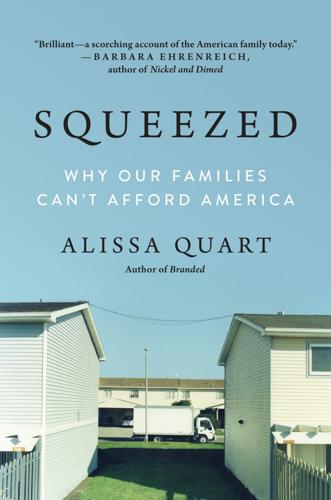
Squeezed: Why Our Families Can't Afford America
by
Alissa Quart
Published 25 Jun 2018
Other professions that haven’t regained many of the jobs lost during the recession include architecture, market research, data processing, book publishing, human resources, and finance—all of which either require or tend to attract workers with master’s degrees. Making this squeeze worse, to my mind, was the oft-heard mantra “do what you love”—the exhortation to members of the middle class that they should try to make a living pursuing their dreams. Well-meaning mentors and corporations recited this dictum. I myself have heard it often. Those exhorting others to “do what you love” manage both to look cool and to squeeze more labor out of their workers. This advice is meant to correct old ideas that labor should be dutiful and even servile rather than impassioned.
…
Individual security and promise have frayed, wrote the University of Chicago professor Berlant, including “upward mobility, job security, political and social equality, and lively, durable intimacy,” and yet we still believe we can “have it all” even when America no longer aids us in having our lives and careers “add up to something.” What creative-class members like myself have experienced by “doing what we love” could sometimes be likened to Berlant’s “stupid optimism,” which “is the most disappointing thing of all.” As Miya Tokumitsu wrote in her book Do What You Love: And Other Lies about Success and Happiness, “doing what you love” in America has been so co-opted by corporations to better exploit their workers that it’s a husk. Examples of this abound, from the technology companies to upmarket restaurant chains and stores like Trader Joe’s that all insist their employees are—or act—happy.
…
There are also, of course, more subtle types of exploitation, as the adjuncts and schoolteachers and journalists who have gone down the virtual garden path of “loving their work” well know. They might, in time, find themselves forced by their professions to work for almost nothing, all in the name of pursuing their avocation. There is something uncomfortably classist in the insistence on doing what you love in the first place, I realized after putting my own “creativity” aside to edit for hire at various points in my life. If the insistence on “doing what you love” comes from a place of privilege, where risks are lower and failure is not the be-all and the end-all, what happens to those who don’t have that privilege? During our current age, what I sometimes think of as “The End of the Middle,” to choose to have children further rocks an unstable structure: we are playing an existential game of Jenga.
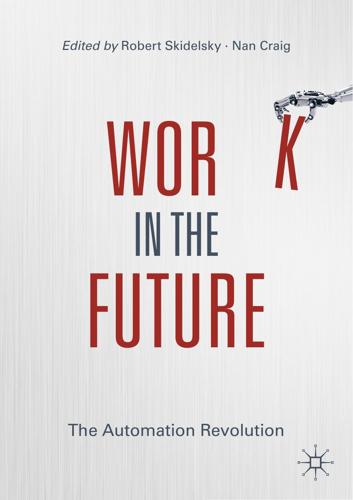
Work in the Future The Automation Revolution-Palgrave MacMillan (2019)
by
Robert Skidelsky Nan Craig
Published 15 Mar 2020
Our attitudes to work are confused in part by being inherited from wildly contradictory traditions—ancient Greece, Puritanism, neoclassical economics. These influence the kinds of work we value, or whether we view a particular activity as ‘work’ at all. For instance, the late Apple CEO Steve Jobs’ exhortation to ‘Do what you love, and love what you do’ is a prime example. In an essay for the online magazine Jacobin, Miya Tokumitsu pointed to this mantra as a pernicious aspiration that manages to both exalt and undermine work, implying that the only really valuable labour is the enjoyable and satisfying (and photogenic) N.
…
Craig (eds.), Work in the Future, https://doi.org/10.1007/978-3-030-21134-9_8 73 74 N. Craig kind.1 By implication, if you do happen to love your work, you should want to do it all the time. You shouldn’t, of course, be so mercenary as to expect to be paid for it. In one sense the slogan of ‘Do what you love’ reflects the split between ‘labour’ and ‘work’ that Hannah Arendt identified, tracing the etymologies back to Greek conceptions of work and life.2 ‘Labour’, she said, is the endless, necessary work required to keep human life running smoothly: growing and preparing food; cleaning and fixing; bearing children and raising them.
…
Slaves and women needed to labour and artisans needed to work so that citizens could be free from the daily grind and participate in a more fulfilling political life. Arendt herself, while not as dismissive as the Greeks were of labour, argued that in a consumer society, everyone becomes a labourer rather than a worker, since everyone is only working in order to keep consuming. Doing work for its own sake makes you a worker, rather than a labourer. ‘Do What You Love’, then, performs a similar sleight of hand: by ignoring the constant, unavoidable labour that goes into maintaining life, and concentrating only on those individuals lucky enough to be working out of enthusiasm, it manages to make most of the world of work disappear. The Stoic philosophers were the first Western thinkers to break with the Greek ideal and argue that hard work could be valuable and noble in itself.
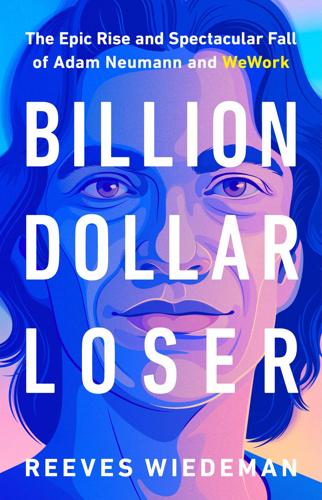
Billion Dollar Loser: The Epic Rise and Spectacular Fall of Adam Neumann and WeWork
by
Reeves Wiedeman
Published 19 Oct 2020
For years, Adam had depended on the circle of friends and family who populated WeWork’s senior ranks. His brother-in-law was the company’s COO; his cousin-in-law was its head of real estate; his navy friend was its first CFO. Rebekah herself had become more involved when it came to WeWork’s branding, developing its new logo and coming up with some of its slogans, like DO WHAT YOU LOVE. Adam admitted that he especially liked hiring his countrymen when he could. In meetings, he regularly switched to Hebrew when he wanted to convey something to the Israelis in the room; one WeWork executive joked about buying Rosetta Stone for his team. But WeWork had grown beyond the expertise of some of the employees whose primary qualification for their jobs was loyalty.
…
only to miss the final question about Plutarch.) Real estate was a dirty game, and if there was an objection to Adam, it wasn’t that his tactics were especially dastardly, but that he was pretending to be something he wasn’t. WeWork’s warpath mentality undercut its rhetoric about changing the world and doing what you love, which had attracted members and employees to the business in the first place. Avril Mulcahy, the owner of a coworking space in London, decided to shut down rather than battle a new WeWork that opened next to her at five times the size. “Their emergence in our building did make a question that had been lurking in the corners for a while very obvious,” Mulcahy wrote.
…
Lord & Taylor had opened the space in 1914 as an early version of what Adam now imagined for his own buildings, with a gym, a school, and a dentist for the department store’s employees. WeWork planned to put its new headquarters in the building; a rendering of the potential renovation replaced the cursive Lord & Taylor marquee on the exterior with a sign reading DO WHAT YOU LOVE. The plan for WeWork Property Advisors called for raising money from investors to help WeWork buy buildings. The team setting up the fund hoped to raise $1 billion. Adam had a better idea: Why not $100 billion? It would be a Vision Fund for buildings, and instantly among the largest such piles of money in the world.

How to American: An Immigrant's Guide to Disappointing Your Parents
by
Jimmy O. Yang
Published 13 Mar 2018
Stephen Chow was my Hong Kong version of the Three Stooges, Laurel and Hardy and Peter Sellers. My dad RICH-ard, my brother Roger, aka Roy, my mom Ah-Mee and Jimmy the washed-up Ping Pong star. HOW TO PURSUE YOUR DREAMS WITH ASIAN PARENTS In America, people always tell me: “Money can’t buy happiness. Do what you love.” In my Chinese family, my dad always tells me: “Pursuing your dreams is for losers. Doing what you love is how you become homeless.” The most important values in American culture are independence and freedom. The most important values in Chinese culture are family and obedience. And by no choice of my own, I am caught in between the two worlds.
…
He left the job that everyone told him he should do to become one of the most successful comedic voices in America. That speech spoke to my lost, hungover college self. I couldn’t imagine wasting my life away at a job based on an economics degree I never cared for, but I was too afraid to find my passion. I could hear my dad saying, “Doing what you love is how you become homeless.” Finding a passion seemed as unrealistic as the Yellow Panthers winning a Grammy. Mike’s commencement speech gave me the permission that my parents never gave me; it gave me the permission to quit what others thought I should do and find something I was truly passionate about.
…
I’d save up enough money to go to either Denny’s or pig out at HomeTown Buffet once a month. Maybe Guam was right about trying to win the lottery. I was praying for a car to plow into me so I could get some insurance settlement. My dad was right all along: “Pursuing your dreams is for losers. Doing what you love is how you become homeless.” I approached one of the managers at the Comedy Palace about my dire financial situation, hoping he’d give me a raise from seven fifty to eight dollars an hour. “Jimmy, you’re great, but there are plenty of desperate comedians out there who would kill for minimum wage,” he frankly explained to me.
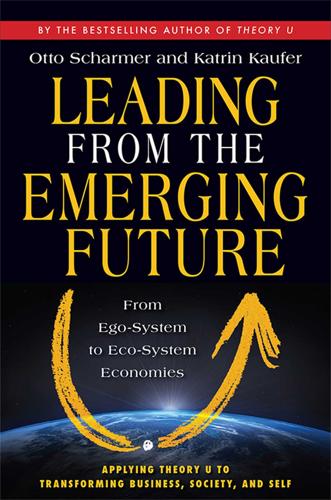
Leading From the Emerging Future: From Ego-System to Eco-System Economies
by
Otto Scharmer
and
Katrin Kaufer
Published 14 Apr 2013
And the only way to do great work is to love what you do. If you haven’t found it yet, keep looking. Don’t settle.”57 The only way to do great work is to love what you do, and to do what you love. Countless other entrepreneurs and innovators have confirmed this deep truth with their own life stories. But how we can create an institutional infrastructure that would allow us to operate from the same deep source on a collective systems level? What we have learned is that the inner principle “do what you love and love what you do” needs to be complemented by an outer principle of deep immersion in the world, particularly a deep immersion in the marginalized edges of our world, with the practice of “always being in dialogue with the universe,” as Alan Webber, the founder of the journal Fast Company, puts it.
…
The third attack happens in the workplace in the form of management incentives, tying bonus payments to targets, and other best practices that are taught in business schools and that, as research tell us, kill creativity in the organization.19 These practices poison all real creativity because they disconnect what we do for a living (our work) from what we really care about (our Work or passion). All great inventors, creators, and entrepreneurs, all great social activists, share the same inner journey and source of satisfaction: loving what you do and doing what you love. That, according to the late Steve Jobs, arguably a good example of a Working entrepreneur, “is the only way to do great work.”20 It is recognizing the connection to this deep source of knowing that can help us in moments when all other navigation instruments fail. 4. Relinking work and entrepreneurship.
…
When such a moment occurs, stay with it, connect with it, and then act from the now—that is, from what wants to emerge. Put differently, when you find yourself beginning to connect with a significant future opportunity, first say yes, then do it, and only then ask whether it’s possible. 5. Follow your heart—do what you love, love what you do. As we’ve noted, Steve Jobs once said the only way to do our best work is to do what we love and to love what we do. It’s the only reliable way to connect to our emerging future path. Make sure that at least some of the projects and activities in your portfolio are things you love doing.
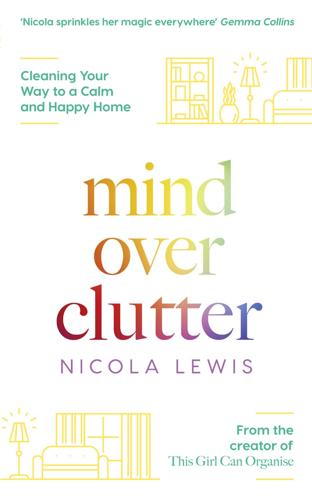
Mind Over Clutter
by
Nicola Lewis
Published 26 Feb 2019
You really can achieve anything you put your mind to. If I can do it, so can you. 10 ways to . . . be happy and feel good It’s easy to feel good about yourself and your life if you start counting your blessings, follow your dream and get organised. Here are some ideas to inspire you: 1. DO WHAT YOU LOVE There is a lot of truth in the sentiment that if you do what you love, you’ll never work a day in your life. If you’re unhappy and can’t find a new job, try to shift your focus and look for the positives in your current one. At the very least, do one thing you enjoy every day. 2. FOLLOW YOUR DREAM Dream big. Since starting TGCO in 2017 I have had the best time!
…
And that’s the way it stayed until one blessed day when my whole team was called into the office – senior management and HR (human resources) at one end and the rest of us at the other – and it was announced that in December 2016 we would all be made redundant as our jobs were going overseas to India. And that was it! Strangely, I felt quite calm. It was almost a relief and I remember thinking to myself: this is God’s plan; this is your time, Nicola, to really do something for you. You need to be happy and this is your opportunity to earn money doing what you love. I’d always told my children that we should only do what makes us happy and had never listened to my own advice, but now the time had come. I felt liberated walking out of Canary Wharf that day and into the future. I was so excited to be leaving – finally, to have the opportunity to do something new and totally different.
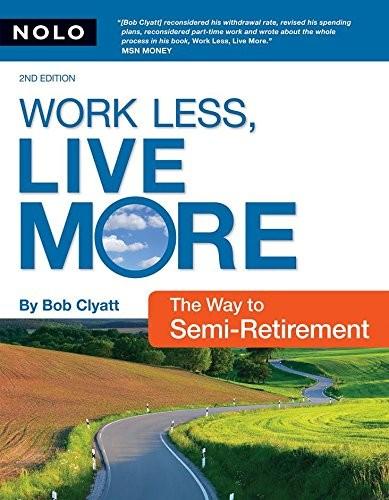
Work Less, Live More: The Way to Semi-Retirement
by
Robert Clyatt
Published 28 Sep 2007
261 How Work Evolves in Semi-Retirement..................................................................262 More Money in Less Time.........................................................................................263 Cutting Ties to Past Work.........................................................................................263 Being Paid for Doing What You Love..................................................................264 An Illustration of the Evolution.............................................................................266 Making the Shift...................................................................................................................267 Have Patience...................................................................................................................267 Decide How Much to Work.....................................................................................267 Take a Sabbatical............................................................................................................270 Start Back Slowly............................................................................................................271 Common Work Options for Semi-Retirees...........................................................272 The Filler Job.....................................................................................................................272 The Avocation.................................................................................................................273 Your Former Job, But Less of It...............................................................................275 Consulting or Freelancing.........................................................................................276 Dealer, Agent, or Broker.............................................................................................278 Angel Investing................................................................................................................280 Real Estate..........................................................................................................................283 Innkeeping.........................................................................................................................286 Artist or Creative Worker..........................................................................................287 Hobby Turned Business..............................................................................................289 Teaching..............................................................................................................................291 260 | Work Less, Live More Unpaid Work Alternatives..............................................................................................292 Volunteering.....................................................................................................................293 Other Unpaid Opportunities..................................................................................296 Finding New Activities......................................................................................................298 Travel....................................................................................................................................298 Recreate...............................................................................................................................300 Get Healthy.......................................................................................................................301 Learn.....................................................................................................................................301 chapter 6 | Do Anything You Want, But Do Something | 261 I n semi-retirement, “work” can be defined as the things you enjoy doing that keep your brain fresh, activities in which people count on you or in which you develop and exercise your unique skills.
…
In your still ample free time, you can dig more deeply into some personal interests—perhaps taking classes, earning certificates, or otherwise retooling yourself for a new field of work. You are starting to be guided in work choices by your intuition that speaks to core values and passions. Being Paid for Doing What You Love Those who become proficient in new areas of interest usually come to trust that there may be a way to earn some income through them and gradually switch to seeking them. If you are in this stage, you may notice that your relationship to money has begun to change. Perhaps your financial portfolio has grown while this process has been occurring, giving you a bit more breathing room.
…
And you may begin to spend your days doing the activities that are not only meaningful to you, but in which you now have skills, contacts, credibility, and experience. From this base, you have truly begun to experience the promise of semi-retirement. With luck, over time, additional income-generating possibilities will arise in these emerging areas of interest. But income will have stopped being the defining driver in your thinking; now, you would rather do what you love and live within the income you can comfortably derive from it. You’ve arrived at a place of wholeness, where in some mysterious way your wide-ranging activities, friendships, and interests seem to reinforce each other. You couldn’t imagine trying to earn your income in a way that wasn’t consistent with the evolving understanding of who you are and how you should best spend your time.
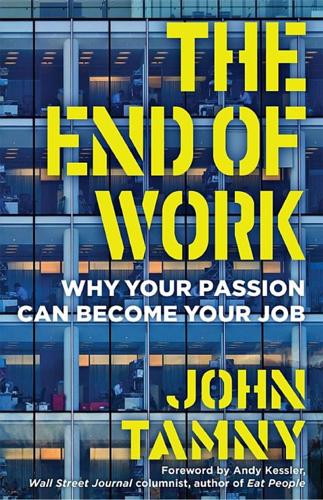
The End of Work: Why Your Passion Can Become Your Job
by
John Tamny
Published 6 May 2018
The freer people are to earn as much as they can and keep it, the more likely it is that everyone will have the opportunity to make a living from his own unique skills and intelligence. Don’t misunderstand me—doing what you love will not be fun all the time. Nothing worthwhile is ever easy. Pursuing your passion, you surely will encounter obstacles and criticism. And it’s not the work of a day: you will have to work long and hard to discover and develop your talent. But here’s the great news: as the United States and the rest of the world advance economically, rising prosperity makes it increasingly likely that you will have the opportunity to do what you love. And the greatest gift of prosperity, beyond freedom from material want, is work that is engaging, absorbing, fulfilling—work that doesn’t feel like work.
…
It was a dream, and I’m forever grateful to Chris McEvoy (National Review) and Nick Schulz (Tech-CentralStation) for giving me a chance to opine on economics as “a writer based in Washington, D.C.” Cato wasn’t interested in employing me as a policy analyst, and no one else seemed to be either. That stung too, but if you’re doing what you love it’s important to embrace the snubs. That’s what I did. If no one thought me worthy, I’d prove them wrong. The more I wrote, the more notice I achieved. In 2006, one of my heroes, Steve Forbes, cited me as a “monetary expert” in his influential magazine column.3 Not long after that, David DesRosiers of the Manhattan Institute asked me to consider succeeding him as director of fundraising there.
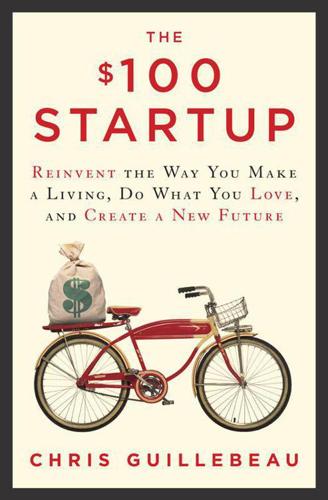
The $100 Startup: Reinvent the Way You Make a Living, Do What You Love, and Create a New Future
by
Chris Guillebeau
Published 7 May 2012
Published in the United States by Crown Business, an imprint of the Crown Publishing Group, a division of Random House, Inc., New York. www.crownpublishing.com CROWN BUSINESS is a trademark and CROWN and the Rising Sun colophon are registered trademarks of Random House, Inc. Library of Congress Cataloging-in-Publication Data Guillebeau, Chris. The $100 startup : reinvent the way you make a living, do what you love, and create a new future / by Chris Guillebeau. p. cm. 1. New business enterprises—Management. 2. Entrepreneurship. I. Title. II. Title: One hundred dollar startup. HD62.5.G854 2012 658.1′1—dc23 2012003093 eISBN: 978-0-307-95154-0 Illustrations: Mike Rohde Jacket design: Michael Nagin Jacket photography: Comstock/Getty Images v3.1 This book is for: those who take action and those who provide the inspiration ROAD MAP Cover Title Page Copyright Dedication PROLOGUE: Manifesto A short guide to everything you want.
…
HD62.5.G854 2012 658.1′1—dc23 2012003093 eISBN: 978-0-307-95154-0 Illustrations: Mike Rohde Jacket design: Michael Nagin Jacket photography: Comstock/Getty Images v3.1 This book is for: those who take action and those who provide the inspiration ROAD MAP Cover Title Page Copyright Dedication PROLOGUE: Manifesto A short guide to everything you want. PART I UNEXPECTED ENTREPRENEURS 1. Renaissance You already have the skills you need—you just have to know where to look. 2. Give Them the Fish How to put happiness in a box and sell it. 3. Follow Your Passion … Maybe Get paid to do what you love by making sure it connects to what other people want. 4. The Rise of the Roaming Entrepreneur “Location, location, location” is overrated. 5. The New Demographics Your customers all have something in common, but it has nothing to do with old-school categories. PART II TAKING IT TO THE STREETS 6.
…
Most people want more of some things (money, love, attention) and less of other things (stress, anxiety, debt). Always focus on what you can add or take away to improve someone’s life … and then prepare to get paid. *See the “Fish Stories” appendix at the back of the book for twenty-five more examples of how to reframe a descriptive concept as a benefit-driven story. GET PAID TO DO WHAT YOU LOVE BY MAKING SURE IT CONNECTS TO WHAT OTHER PEOPLE WANT. “Passion, though a bad regulator, is a powerful spring.” —RALPH WALDO EMERSON Like many of us, Gary Leff begins his day with email. As a CFO for two university research centers in northern Virginia, he’s in touch with colleagues from morning to night.
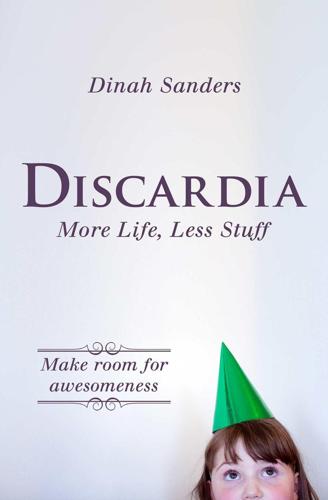
Discardia: More Life, Less Stuff
by
Dinah Sanders
Published 7 Oct 2011
Didn't you foresee that it would just kill by contrast all the trumpery which you have been so laboriously teaching him to value? And that the sort of pleasure which the book and the walk gave him was the most dangerous of all? That it would peel off from his sensibility the kind of crust you have been forming on it, and make him feel that he was coming home, recovering himself?” Do what you love whenever you can. Even if the busyness of life only gives you a few minutes—my sympathies to you new parents out there—make good use of it and don’t put off activities that matter to you. Read a chapter of a book, practice that guitar, cuddle with your sweetheart, plant a few bulbs in the garden, or look through the bulb catalog and think about what you'd like to get—whatever feeds your soul.
…
Third, note the commitments you made to other people and social possibilities you'd already been considering that still sound appealing. Now, build a day that has all three represented, with adequate time between so you don’t feel rushed. I recommend cutting from piece three to ensure you get enough of piece one. You can’t do everything, so do what you love most, what helps you avoid hassles, and what keeps you connected with those who matter to you. Of course it’s hard to have those perfect days, especially when you’re first starting out, but know what they look like so you can steer the days you do have toward them. Prime your pump When your energy is low or you’re recovering from a big disruption in your normal routine, try the advice of writer and minimalist Erin Doland: “Schedule the task you will feel the greatest reward from accomplishing first.
…
We have traded presents for presence. Symptom #29: No Home Position Solution #29: A Room of One’s Own A house is a machine to live in and from which all superfluous and irritating ornaments should be banished. —A. L. Sadler, professor of oriental studies Does your home support you in doing what you love? As you focus on only the best parts of the holidays, take some time to mull over what you love to do now and in general: Are you planning to get out and do some backpacking this year? Think about where you keep your equipment. If it’s buried in the basement or the back of a closet, or scattered around the place, store it in a more convenient and organized way so you don't have a roadblock to getting out of town.
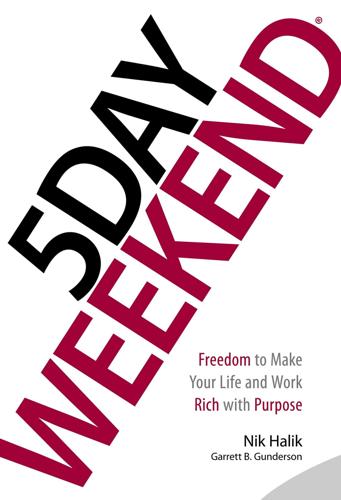
5 Day Weekend: Freedom to Make Your Life and Work Rich With Purpose
by
Nik Halik
and
Garrett B. Gunderson
Published 5 Mar 2018
As a 5 Day Weekender, you reinvent yourself and break through your financial glass ceiling. You generate your own income doing what you love. You don’t hand your money over to someone else to manage, where your risk is high and you have little or no control. Rather, you stay in control of your own money to reduce your risk and dramatically increase your cash flow and profitability. Instead of accumulating over long periods of time, you leverage and utilize to create exponentially greater returns. You’re not working for money. You’re working for the freedom of a 5 Day Weekend lifestyle. Are you doing what you love? Have you built a life you don’t need a vacation from?
…
As you create more choices and more free time, you can spend your life in ways that provide your greatest joy, achieve your grandest goals, and share your abundance with your community. You are free to fully live your highest purpose. You crush the word “someday” and do the things you’ve always dreamed of doing today. You stop wishing and start truly living. The ultimate quantification of success is not how much time you spend doing what you love. It’s how little time you spend doing what you hate. Most people work for their money. I’m going to show you how to get your money working for you. “There is no small passion to be found playing small — in settling for a life that is less than the one you are capable of living.” —NELSON MANDELA CHAPTER 2 NEW MINDSET, MORE FREEDOM Retirement.
…
You’re not lacking anything you need to succeed. Everything you need is already inside you, just awaiting activation by your unwavering commitment to a goal. Every resource you ever need will come to you as you commit wholeheartedly, work diligently, think creatively, and initiate boldly. “Doing what you love is the cornerstone of having abundance in your life.” —WAYNE DYER CHAPTER 13 EXPLORING ENTREPRENEURIAL IDEAS The world has changed drastically and fundamentally. In the Information Age, technology, communication, and a global economy have democratized opportunity like never before.
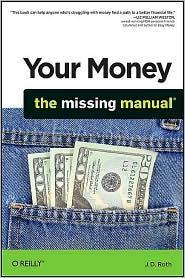
Your Money: The Missing Manual
by
J.D. Roth
Published 18 Mar 2010
Or should you focus simply on the money? In his essay on how to do what you love (www.paulgraham.com/love.html), Paul Graham writes: Finding work you love is very difficult. Most people fail. Even if you succeed, it's rare to be free to work on what you want till your thirties or forties. But if you have the destination in sight you'll be more likely to arrive at it. If you know you can love work, you're in the home stretch, and if you know what work you love, you're practically there. Some folks claim that if you do what you love, the money will follow. Others say that a job is just a job—you're not meant to like it.
…
Some can't stand working for somebody else. Others see it as an opportunity to make more money. And a few recognize it as a way to do work they're passionate about. Working for yourself can be freeing, increase your income, and let you focus on doing what you love. But as wonderful as self-employment is, there are plenty of pitfalls. The Pros and Cons of Entrepreneurship There's a big difference between doing what you love as a hobby and having it for a job. When you make a little money from your hobby (see Money-Making Hobbies), that's extra income, which is part of the fun. But when you flip the switch and it becomes your sole means of making a living, some of that fun vanishes—sometimes all of it disappears.
…
Money-Making Hobbies Even if you're not interested in owning a business that you work at full time, a small-scale venture might be right for you. Why not build a business around one of your hobbies? You won't get rich by playing your violin at weddings or weaving baskets, but it never hurts to earn a little extra cash from things you'd do anyhow. This section suggests some key ways to make money from your hobbies. Do what you love Choose a hobby you enjoy, and then try to find a way to make money from it. Don't dive into a hobby simply because it might be profitable. You should do this thing because you love it; any income should be secondary. Keep it fun and it won't become a chore. Example: I love to write. When I was struggling with debt, I read personal finance books, and then summarized what I'd learned on my website.
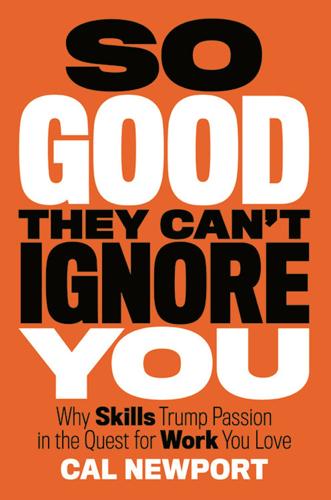
So Good They Can't Ignore You: Why Skills Trump Passion in the Quest for Work You Love
by
Cal Newport
Published 17 Sep 2012
We’ll also return to Thomas, who after his dispiriting realization at the monastery was able to return to his first principles, move his focus away from finding the right work and toward working right, and eventually build, for the first time in his life, a love for what he does. This is the happiness that you, too, should demand. It’s my hope that the insights that follow will free you from simplistic catchphrases like “follow your passion” and “do what you love”—the type of catchphrases that have helped spawn the career confusion that afflicts so many today—and instead, provide you with a realistic path toward a meaningful and engaging working life. RULE #1 Don’t Follow Your Passion Chapter One The “Passion” of Steve Jobs In which I question the validity of the passion hypothesis, which says that the key to occupational happiness is to match your job to a pre-existing passion.
…
About a third of the way into the address, Jobs offered the following advice: You’ve got to find what you love…. [T]he only way to do great work is to love what you do. If you haven’t found it yet, keep looking, and don’t settle. When he finished, he received a standing ovation. Though Jobs’s address contained several different lessons, his emphasis on doing what you love was the clear standout. In the official press release describing the event, for example, Stanford’s news service reported that Jobs “urged graduates to pursue their dreams.” Soon after, an unofficial video of the address was posted on YouTube, where it went viral, gathering over 3.5 million views.
…
This is where you find titles like Escape from Cubicle Nation, which, as one review described it, “teaches the tricks behind finding what makes you purr.” These books, as well as the thousands of full-time bloggers, professional counselors, and self-proclaimed gurus who orbit these same core issues of workplace happiness, all peddle the same lesson: to be happy, you must follow your passion. As one prominent career counselor told me, “do what you love, and the money will follow” has become the de facto motto of the career-advice field. There is, however, a problem lurking here: When you look past the feel-good slogans and go deeper into the details of how passionate people like Steve Jobs really got started, or ask scientists about what actually predicts workplace happiness, the issue becomes much more complicated.

Cashing Out: Win the Wealth Game by Walking Away
by
Julien Saunders
and
Kiersten Saunders
Published 13 Jun 2022
We had to get really honest with ourselves: the direction we were headed in would never help us get out of a cycle of working for others and giving up our financial futures to a career. To make the kind of progress we were truly envisioning, we had to be willing to think and act differently. Cashing out wasn’t about giving up. It was about letting go. Our self-reflection ultimately led us to five compelling reasons to cash out. 1 | More Time to Do What You Love If we asked you to make a list of what was most important in your life, we’re willing to bet family and community would be near the top of the list. We’re no different, and like you we struggled to make the connection between how we managed our time amid a growing list of competing priorities.
…
See also expenses loneliness, overcoming, 18 low-wage workers, 76 Lyft, 131 M m1finance.com, 131 market downturns, 98–99, 173–74 marriage average length of, 75 challenges faced in, 201 and divorces, 75, 199, 201, 234 time to devote to, 35 See also couples matching by employers, 156, 176 McKinsey study on automation threat, 126 median wealth prediction for Black individuals, 3, 53–54 media portrayals of wealth, 33–34, 221 meetups, 218–19 mercari.com, 135 meritocracy, myth of, 28 middle class, 50 Middle personality type Big 3 downplayed by, 57, 59–60 blind optimism practiced by, 62–63 characteristics of, 50–52 and compound interest, 68 and Fast Spenders personality type, 50, 51, 61 and Financially Insecure personality type, 50, 51 and lifestyle inflation, 61 meaning of “freedom” for, 69 memories of financial insecurity, 51, 60–61 possessions of, 59 and struggles with retirement savings, 51, 63 taste preferences of, 61 millennials, 76, 144 millionaires FIRE movement and Black, 29 and market boom of 2020, 232 meetups of, 219–20 status as milestone, 233 mindset, 103–20 and absence of certainty, 111, 114–16 and confidence, 112–13 and courage, 108, 111, 112–14, 117–18 and financial literacy, 108–11 rules and richuals for, 118–20 and true income potential, 107 Money on the Table (video series), 12 money’s ability to work harder than you can belief in, 65 and purchasing power of wages, 172–73 and stealth wealth, 38 transitioning to, 62 value of acknowledging, 228 moral code, following, 172 mortgage and debt reduction methods, 82 paying off, 6 refinancing, 57 multilevel-marketing businesses, 170 mutual funds about, 159–60 active management of, 160, 166 educated guesses at heart of, 160 fees associated with, 163–64, 165–66 index funds compared to, 162 underperformance of, 166 See also 401(k)s; index funds N Nasdaq index, 161 National Basketball Association, 162 National Law Center on Homelessness and Poverty, 77 needs, basic, 56–60 negativity, 48 nerdwallet.com, 131 net worth declining, 54 and income, 54–55 stating publicly, 220 NFTs (non-fungible tokens), 129 Notorious B.I.G., 198 O opportunities, evaluating, 129–30, 129 oppression, exposure to, 210 optimism blind, 62–63, 158 as motivator for difficult tasks, 194 options trading, 114 Orman, Suze, 155 ourrichjourney.com, 215 P parenthood and childcare costs, 30 uncertainty experienced in, 115 and work-life balance, 30 parents, supporting aging, 10, 70 passive income, 22, 65 paycheck to paycheck, living, 47, 77–78 paying yourself first, 118 PDFs, selling, 136 personality types, financial, 46–52 Fast Spenders type, 48–50, 51, 52, 61, 69 Financially Insecure type, 46–48, 50, 51, 52, 69, 233 the Middle type, 50–52 Pew Research Center, 36, 172–73 phones, faux connectedness from, 25 Playing with FIRE (documentary), 47 The Plug (Dorsey), 133 podcasts and Jannese’s success story, 124 learning about FI through, 217–18 and preferences of audiences, 145 thepointsguy.com, 131 Popcorn Finance (Browning), 218 poshmark.com, 135 positivity, pressure to sustain, 43 poverty and automation threat to employment, 126 cycle of, 47, 234 principles of cashing out, 36–41 embracing stealth wealth, 37–39 prioritizing purpose and community, 40–41 recognizing the Black tax, 39–40 “progress trap,” 64 public.com, 131 public health, negative impacts of work on, 31–32 purchasing power, impact of inflation on, 173 Purple, 91–94, 95 purpose(s) of income, 44–73 asking better questions about, 120 and Black buying power, 52–55 and breaking the consumerism cycle, 45 and financial personality types, 46–52 flexibility, 56, 60–65 freedom, 56, 56, 68–71 independence, 56, 65–68 lack of, 51–52 and retirement, 54–55 rules and richuals for, 72–73 security, 56–60, 56 and sinking funds, 119 Q quality of life, financial components of, 9 questions, asking better, 119–20 R racism, 39–40 “Raising a Family Index” (RAFI), 30 Ramsey, Dave, 155 Ray, Ola, 101–2 real estate agents, 61 real estate investing of authors, 6, 11, 87–88, 142, 143 income from, 22, 86 Kendra’s success story, 85, 86–87 1 percent rule in, 87 “Reality Check: Paycheck-to-Paycheck,” 77 reasons for cashing out freedom from burnout, 31–33 prioritizing family life, 29–30 safety from corporate change, 27–28 success on your terms, 28–29 time to do what you love, 25–26 regret/sacrifice, moments of, 100, 200–201 religious faith, 36–37 restaurants, dining in, 57 retirement difficulty saving for, 59 income’s role in preparing for, 55 lack of successful examples of, 22 and Middle personality type, 51 and pending crisis, 210 See also retirement accounts retirement accounts IRAs (individual retirement accounts), 94, 114 and matching by employers, 156, 176 maxing out, 94, 168 procrastinating on, 154–55 of self-employed, 176 See also 401(k)s; index funds rewarding yourself, 81–82 Rice, Bradley, 212 “richuals” (term), 17 ride-sharing companies, 131 risk managing feelings of, 116 and the myth of full confidence, 113–14 and uncertainty, 116 Rock, Chris, 33 role models, lack of relatable, 68 rounding-up programs at banks, 118–19 S S&P 500 index fund, 161, 163, 173, 230 sacrifice/regret, moments of, 100, 200–201 saving money/savings authors’ rate of, 11 conventional approach to, 226–27 conversations about, 193–94 and labeling people as “savers,” 191 lessons passed to children on, 226–27 low levels of, 4, 45 and Middle personality type, 50 reframing practice of, 193–94 sacrifices made for, 200–201 security as first purpose of income, 56–60, 56 self-care, 32 self-defeatist language, 15 self-doubt, overcoming, 18, 111 self-employment and retirement accounts, 176 self-reliance, 64–65 selling, 137–40 shame/shaming for buying preferences, 61 and defensiveness, 195 overcoming, 18 sharing, 213–14 Shopify, 137 short-term wants/needs, 63 sinking funds, 119 skills, cultivating marketable, 83, 87, 94, 99, 147 Skillshare, 137 slavery, legacy of, 3 snowball method to paying off debt, 80–81, 81 social issues, ability to engage with, 35 social media platforms and content creators, 141–45 FI community on, 216–17, 220–21 gurus/celebrity advisers on, 223 sharing strengths/wins on, 90 Souffrant, Jamila, 217 spending.
…
See consumerism and spending standards of living, pressure to uphold, 107 Statista, 63 stealth wealth, 37–39 stock market calculated risks in, 174 downturns in, 98–99, 173–74 and health of economy, 230 historical average returns in, 162–63, 168 index funds’ relationship to, 158–59 and investment clubs, 170 lack of certainty in, 111, 114–16 as wealth-building machine, 16 storage industry, 63–64 strengths, getting feedback on, 89–90 stress, 31–32, 97 struggle, financial, 46–48 student loan debt of authors, 6 average balance of, 76–77 challenge of paying down, 4, 59 as crisis, 210 and Jannese’s success story, 123, 124 success maintaining appearance of, 4 as six-figure salary, 147 on your own terms, 28–29 swagbucks.com, 131 T taboo of talking about money, 12, 38 talentstacker.com, 212 taskrabbit.com, 131 taxes, 165 Teachable, 137 technology advances in, 127 and digital divide, 128 entrepreneurship in, 128–29 and future of wealth, 127–29 and gig economy, 131–34 impact on entrepreneurship, 128–29 income options unlocked by, 139 technological literacy, 128 as threat to employment, 125–26 television, gurus/celebrity advisers on, 155–56, 223 terrorism, domestic, 3 “Thriller” video (Jackson), 101–2 time to do what you love, 25–26 exchanged for wages/salary, 124–27, 138 token integration, 41 Torres-Rodriguez, Jannese, 123–24 Total Stock Market Index Fund (Vanguard), 167, 168 transportation as Big 3 expense, 57, 59 trucking industry, automation in, 126 Twitter, 145 2008 economic downturn, 76, 131–34, 155, 173 U Uber, 131, 135 Umi Feeds (nonprofit), 221–22 universal basic income, 125–26 upside/urgency in entrepreneurial opportunities, 129–37, 129 U.S.
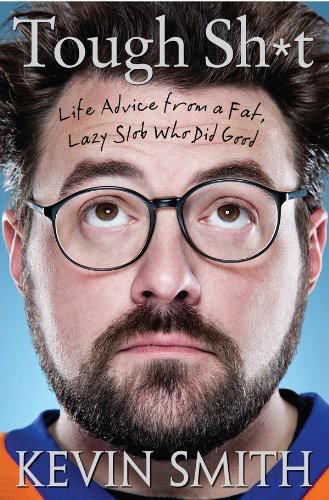
Tough Sh*t: Life Advice From a Fat, Lazy Slob Who Did Good
by
Kevin Smith
Published 20 Mar 2012
Made for five million (a nearly five-million-dollar increase from the budget of Clerks), Clerks II was more than just a reunion flick or a trip back to the well, as I called it: It was the last good time. After that, filmmaking would change for me. After that, I’d realize my time as a cinematic storyteller was coming to a close. Because the tough shit is, sometimes you can start out doing what you love, and then doing what you love starts to become work. Twenty years is a long time to do anything, let alone make movies. I’ve gone further than I ever dreamed. The plan back in 1991 had been to make Clerks on credit cards, hoping someone with money would see that we knew how to make a film and in turn reward us with a budget to do a next one.
…
Not sure what their endgame’s gonna be, but writing about movies and hosting trailers is a start, right? For some, the endgame will be to make a film. For others, just having people read what they have to say about a subject they love is good enough. Regardless, the smart ones will always find a way to earn off it. Because once you’ve got a taste for working for yourself, doing what you love doing? You’ll work ten times harder than any bricklayer or paralegal, but you’ll never feel it and never recognize it. Controlling your own little universe is key. Before I made Clerks, I was in my early twenties, and the universe I lived in was run by my parents. Since I lived rent-free under their roof, I had to abide by their rules—which included mandatory trips to relatives’ houses every weekend.
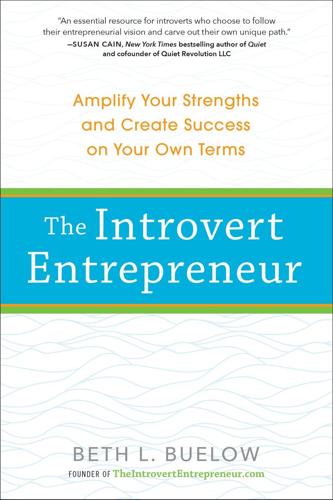
The Introvert Entrepreneur: Amplify Your Strengths and Create Success on Your Own Terms
by
Beth Buelow
Published 3 Nov 2015
Content Is King: How Working on and in Your Business Can Be the Same Thing If you don’t know where you are going, any road will take you there. —Cheshire Cat, Alice in Wonderland Business development is not something set apart from your passion that keeps you from doing what you love. Rather, it enables you to do what you love. For me, being able to reframe sales to “education” makes a big difference in how I approach sharing my message. My sales calls are really prospect or discovery calls. I don’t like thinking of the process in terms of “getting clients.” Instead, my mission is broader and more prospect focused.
…
One of your objectives is to reap a financial return for the work you do (remember, one of the defining characteristics of entrepreneurship is to make a profit). You can love that work to the point where you can’t believe that you get paid to do it. That’s the great benefit of entrepreneurship. You get paid to do what you love to do. If you didn’t, it would be an avocation: something outside your profession, done purely for the love of it. Because of the L-word—love—the lines between vocation and avocation can become very blurry. This is especially true if you have any level of fear or doubt about the value of your products or services or talking about the value of your services with others.
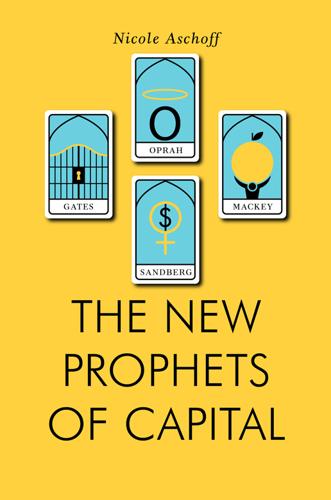
The New Prophets of Capital
by
Nicole Aschoff
Published 10 Mar 2015
Trust your heart and success will come to you.24 Millennials have internalized this message: A recent study found that young people believe that adulthood “should be a journey toward happiness and fulfillment, meaning and purpose, [and] self-actualization,” one “marked by continuous development, discovery and growth.”25 Identity and work are inseparable in this equation, not because people identify themselves by their occupation, but because more and more of our lives are spent working, networking, and building up our personal brand. We spend years acquiring social capital (connections, access to networks) and cultural capital (skills and education) so we can find a job we love and hopefully keep a roof over our heads. The “do what you love” message is at the heart of the work-identity fusion. It advises you to follow your passion. If you’re unhappy, it’s because you’re not following your passion. If your job sucks, you’re at the wrong job. Video blogger and social media guru Gary Vaynerchuk’s famous TED Talk is a “shot in the arm” for those pining for a more fulfilling life: There are way too many people in this room right now that are doing stuff they hate.
…
In 2011, Fox Searchlight Pictures was charged with violating the Fair Labor Standards Act, and since then similar lawsuits have been filed against other companies, including Warner Music Group, Atlantic Music, and publishing houses Condé Nast and Hearst Corporation. In October 2014, NBC Universal settled a class-action lawsuit brought by a group of its interns for $4.6 million. Following your passion and doing what you love may also require you to forgo job stability and long-term employment on the always changing, always moving road to self-actualization. But job stability is rare these days: The average Millennial spends only 2.6 years at a company today. Some 30 percent of the US workforce is contingent labor, and by some estimates, 40 to 50 percent of jobs that produce an income will be organized as short-term, contract work by 2020.
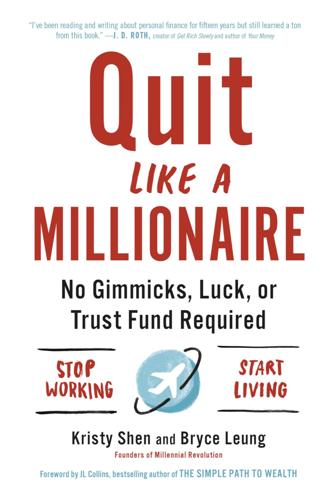
Quit Like a Millionaire: No Gimmicks, Luck, or Trust Fund Required
by
Kristy Shen
and
Bryce Leung
Published 8 Jul 2019
I’m not here to tell you things you want to hear; I’m here to tell you the truth. But remember that the rule is “Don’t follow your passion (yet).” I’m not saying you can’t ever make money doing what you love. After all, you’re only reading this because I eventually was able to become an author. But you have to follow the rest of my advice first. Doing what you love and hoping for money to follow is risky. Follow the money first, and you can do what you love later. Not all degrees are created equal. Don’t follow your passion (yet). Follow the POT. And, yes, I wrote this entire chapter just to be able to close with that line.
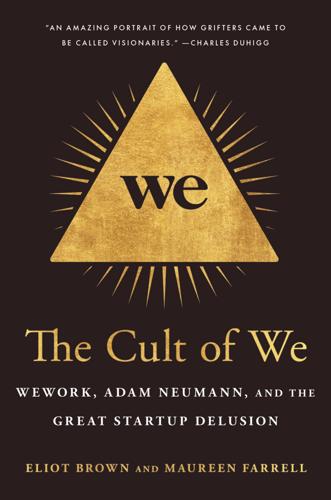
The Cult of We: WeWork, Adam Neumann, and the Great Startup Delusion
by
Eliot Brown
and
Maureen Farrell
Published 19 Jul 2021
She devoted part of the WeWork space at 175 Varick Street to companies and people in the film industry, and she tried to launch an arm of the company dedicated to producing films, but despite her shuttling to L.A. for many pitch meetings, it fizzled before getting off the ground. As stardom seemed less and less likely, though, she turned her focus to growing her husband’s main business. She dived further into branding, coming up with a number of the defining taglines for the company. She was credited with coining “Do What You Love,” which WeWork put everywhere, emblazoning the slogan in white cursive font on black T-shirts and black flags that would hang outside WeWork locations. Another, “Make a Life, Not Just a Living,” was often repeated internally to sum up the ethos of what WeWork was trying to build. At the same time, she was spending a great deal of time at home.
…
Neumann showed off a video of his commute to a cheering crowd. The company’s culture played well on social media. WeWork staff would post pictures on Instagram of the inspirational slogans scrawled on T-shirts, printed on mugs, and spelled out in neon signs at WeWork offices. “Hustle Harder.” “Embrace the Hustle.” “Do What You Love.” “Thank God It’s Monday.” “Can’t Stop Won’t Stop.” Staffers posted endless pictures of well-designed new offices, along with photos of tequila shots and prosecco flutes. Friends would comment, “So jealous!!” and “Are they hiring?” Carl Pierre was just twenty-five years old when he was hired by WeWork to run its nascent Washington, D.C., operation.
…
In midtown Manhattan, it had become like Starbucks during its expansion blitz of the 2000s, with its black flags with “WeWork” written in white popping up outside brick buildings on seemingly every other block. Its swag was also omnipresent. WeWork T-shirts dotted the subways. When it rained, WeWork-issued “Do What You Love” umbrellas sprang up on sidewalks. This scale should have meant enormous savings. A company adding a Kansas City’s worth of office space should be able to negotiate great prices; it should need far fewer people working in administration at headquarters for every office. WeWork’s CFO, Artie Minson, had long touted the financial benefits of this expansion.
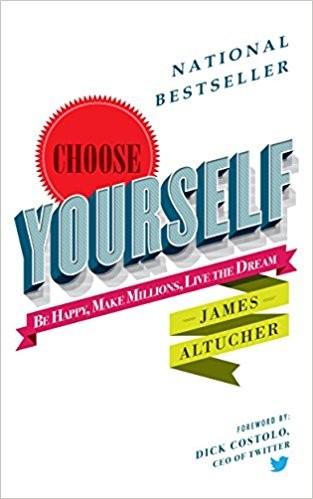
Choose Yourself!
by
James Altucher
Published 14 Sep 2013
I’ve seen it happen for myself and for others. Don’t plagiarize the lives of your parents, your peers, your teachers, your colleagues, and your bosses. Be the criminal of their rules. Create your own life. I wish I were you because if you follow the above, then you will most likely end up doing what you love and getting massively rich while helping many others. I didn’t do that when I was twenty. But now, at forty-six, I’m really grateful I have the chance every day to wake up and improve one percent. OK—let’s choose ourselves for wealth. Why All The Personal Finance Gurus Are Out of Date Perhaps you found this book in the personal finance section of a store or website.
…
So I really had no choice but to share it with you. Don’t plagiarize the lives of your parents, your peers, your teachers, your colleagues, and your bosses. Be the criminal of their rules. Create your own life. I wish I were you because if you follow my advice, then you will most likely end up doing what you love and getting massively rich while helping many others. I didn’t do that when I was twenty. But now, at forty-six, I’m really grateful I have the chance every day to wake up and improve one percent. And I hope you do the same. How to Run a “Choose Yourself” Meetup A lot of what you’ve read in this book will come to life when you discuss it with other people.
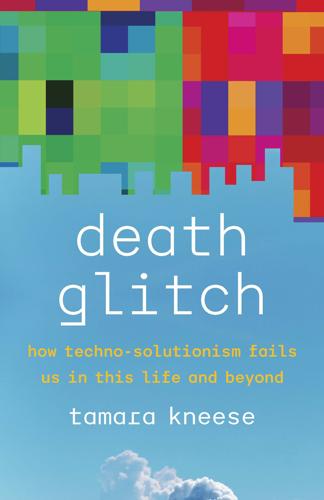
Death Glitch: How Techno-Solutionism Fails Us in This Life and Beyond
by
Tamara Kneese
Published 14 Aug 2023
Sulik, “The Balancing Act.” 66. Pitts, “Illness and Internet Empowerment”; Banner, Communicative Biocapitalism. 67. For more on the sometimes ambivalent experiences of making feminized, private experiences public, see Lopez, “The Radical Act of ‘Mommy Blogging’ ”; Duffy, (Not) Getting Paid to Do What You Love. 68. Digital Beyond panel, SXSW 2012, “Digital Immortals: Preserving Life Beyond Death.” 69. GoDaddy has roughly 62 million registered domains and is the largest domain registrar. Chapter 3. Disrupted Inheritance 1. Friedman, Dead Hands. 2. Mitford, The American Way of Death. 3. Zelizer, “Human Values and the Market.” 4.
…
Fast Company, May 23, 2022. www.fastcompany.com/90749469/how-gofundmes-new-pages-take-a-sensitive-approach-to-grief. Denton, Nick. “Facebook: The Virginia Tech Shootings.” Valleywag, April 17, 2007. valleywag.com/tech/Facebook/the-virginia-tech-shootings-253055.php. Dubal, Veena. “Essentially Dispossessed.” South Atlantic Quarterly 121, no. 2 (2022): 285–96. Duffy, Brooke Erin. (Not) Getting Paid to Do What You Love: Gender, Social Media, and Aspirational Work. New Haven, Conn.: Yale University Press, 2017. Dunbar-Hester, Christina. Hacking Diversity: The Politics of Inclusion in Open Technology Cultures. Princeton, N.J.: Princeton University Press, 2019. Dunham, Emily. “Facebook of the Dead.” XKCD comic.
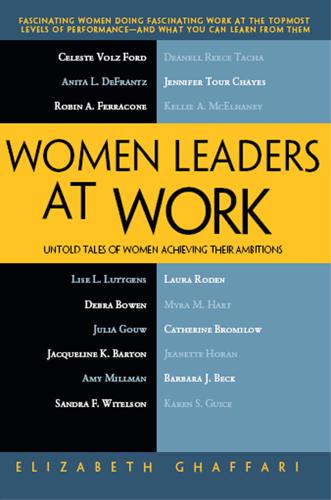
Women Leaders at Work: Untold Tales of Women Achieving Their Ambitions
by
Elizabeth Ghaffari
Published 5 Dec 2011
The other side is the women and men that I have trained in my laboratory—my scientific children. That’s the flip side. Ghaffari: Is there anything you would say to advise young women about their interest in science or math? Barton: Do what you love. Follow your passion. And, if you love doing science, you can do it. There’s no reason why you can’t. So, do what you love, because whatever you love doing, you’ll be good at it. Amy Millman President, Springboard Enterprises Born June 1954 in Brooklyn, New York. For more than a decade, Amy Millman has been president and principal advocate of Springboard Enterprises—the premier venture-catalyst platform for building women-led businesses.
…
Ford: Engineering typically is not considered by women as a fun career option or thought of as a fun career. You don’t see any TV shows about “The Young Engineers.” There is a fun side to engineering—you just have to be diligent in finding a good fit with your skills and interests. Find out for yourself. Ghaffari: Would you give any different advice to men? Ford: Do what you love. Find your dream job. Do the important work. Persistence. One step at a time. That’s the same advice you’d give anyone. Not just women. Ghaffari: What do you see as the area of greatest opportunity for young women professionals? Ford: Today, opportunities for women are better than they were when I started out and certainly better than my mom’s generation.
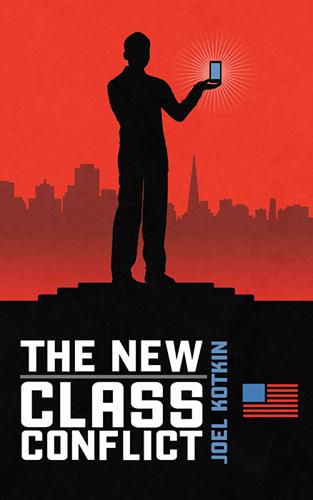
The New Class Conflict
by
Joel Kotkin
Published 31 Aug 2014
Since 1967, notes one 2010 study, the percentage of underemployed college graduates—those working well below their level of qualifications—has soared from roughly 10 percent to over 35 percent.25 The glut of college graduates reflects the difficulties facing a generation that, growing up in an era of relative prosperity, now finds the realities of life far more challenging than they were led to believe.26 The millennials have frequently been told that they could pursue the fields that they “loved” and somehow make a living at it. Yet for many this has turned out to be a fairy tale, a life that can be afforded only by the rich. “‘Do what you love’ disguises the fact that being able to choose a career primarily for personal reward is a privilege, a sign of socioeconomic class,” notes one observer.27 The disjunction between career choice and reality, then, is particularly intense for those who receive degrees from second- or third-tier institutions.
…
Richard Vedder, “The College-Graduate Glut: Evidence From Labor Markets,” Innovations (blog), Chronicle of Higher Education, July 11, 2012, http://chronicle.com/blogs/innovations/the-college-graduate-glut-evidence-from-labor-markets/32997. 27. Miya Tokumitsu, “In the Name of Love,” Slate, January 16, 2014, http://www.slate.com/articles/technology/technology/2014/01/do_what_you_love_love_what_you_do_an_omnipresent_mantra_that_s_bad_for_work.html. 28. Samantha Stainburn, “Following the Money: Calculating the Net Worth of a College Degree,” New York Times, August 2, 2013. 29. The White House, “Remarks by the President on Opportunity for All and Skills for America’s Workers,” press release, January 30, 2014, http://www.whitehouse.gov/the-press-office/2014/01/30/remarks-president-opportunity-all-and-skills-americas-workers. 30.

Inspire Your Home
by
Farah Merhi
Published 22 Oct 2019
Provide your email again so we can register this ebook and send you more of what you like to read. You will continue to receive exclusive offers in your inbox. DEDICATION To my children, Celine, Julia, and Adam: If there is one thing I want you to take away from this, it is that when you do what you love from your heart, dreams do come true. You three are my reason, my why, my everything. To my husband, William: You have shown me the definition of true love. The way you believe in me, the way you’re there for me, has allowed me to spread my wings and do what I love without holding back. Thank you for being you.
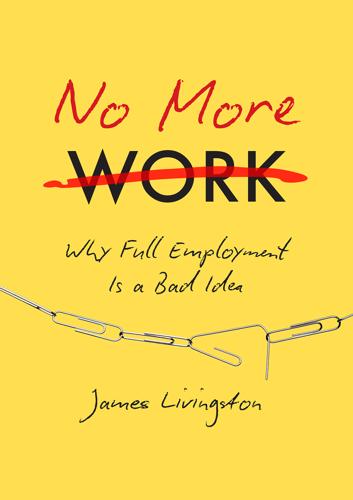
No More Work: Why Full Employment Is a Bad Idea
by
James Livingston
Published 15 Feb 2016
But look, I’d rather suck your dick than wait on you in Applebee’s, get paid shit for bein’ polite to you, you see what I’m sayin’?” Or Ephraim, the window installer, once upon a time an athlete, a pitcher drafted by the Chicago Cubs who never made it to the big leagues: “I tell my daughter, you gotta do what you love to do; the money don’t matter when you get to be my age. I played ball, now I do this. I’m not proud of it. But I’m alive.” Or Mel the super, who’s got six buildings on my block, one of them the halfway house next door, where morons and murderers go to pretend they’re not. He’s a man who’s always at work: “I’m blessed because I don’t ride that raggedy-ass subway to the Bronx anymore”—he used to be a mechanic for the MTA—“I walk out the door every morning and there I am, I’m at work on my own street, you see what I mean?
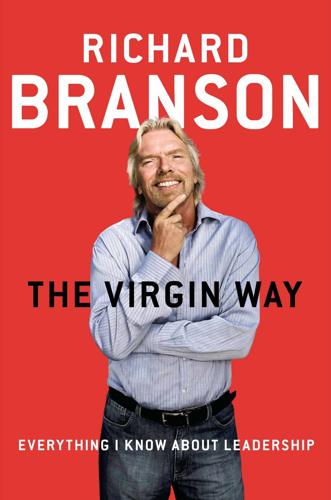
The Virgin Way: Everything I Know About Leadership
by
Richard Branson
Published 8 Sep 2014
Mushrooms might grow when they are kept in the dark and fed a diet of dung but it doesn’t work with people. Remember Steve Jobs and the Pixar piazza: build open work environments that invite your people to intermingle and share their visions. 10. DO WHAT YOU LOVE AND HAVE A COUCH IN THE KITCHEN As long as you are surrounded by the people you love and doing what you love, it really doesn’t matter where you are. When we are on Necker we tend to spend most of our time in the kitchen. Add in a bedroom and a partner that you love, and you really don’t need too much more. Now I really must get back to my hammock and do some business – around here that’s known as the Virgin Island Way!
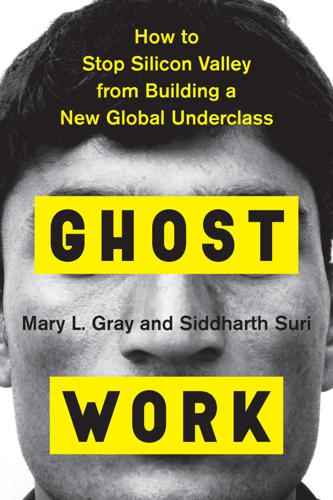
Ghost Work: How to Stop Silicon Valley From Building a New Global Underclass
by
Mary L. Gray
and
Siddharth Suri
Published 6 May 2019
“Virtual Webs, Physical Technologies, and Hidden Workers.” Technology and Culture 42, no. 2 (April 2001): 209–35. Dube, Arindrajit, Jeff Jacobs, Suresh Naidu, and Siddharth Suri. “Monopsony in Online Labor Markets.” American Economic Review: Insights, forthcoming. Duffy, Brooke Erin. (Not) Getting Paid to Do What You Love: Gender, Social Media, and Aspirational Work. New Haven, CT: Yale University Press, 2017. Ekbia, H. R., and Bonnie A. Nardi. Heteromation, and Other Stories of Computing and Capitalism. Cambridge, MA: MIT Press, 2017. Erickson, Kristofer, and Inge Sørensen. “Regulating the Sharing Economy.”
…
Households in 2016 (Washington, DC: Federal Reserve Board, May 2017); Neal Gabler, “The Secret Shame of Middle-Class Americans,” The Atlantic, May 2016, https://www.theatlantic.com/magazine/archive/2016/05/my-secret-shame/476415/. [back] 2. Brooke Erin Duffy calls this mix of passion projects and portfolio-building forms of “aspirational labor.” See Brooke Erin Duffy, (Not) Getting Paid to Do What You Love: Gender, Social Media, and Aspirational Work (New Haven, CT: Yale University Press, 2017). [back] 3. Weil, The Fissured Workplace; Dean Baker, Rigged: How Globalization and the Rules of the Modern Economy Were Structured to Make the Rich Richer (Washington, DC: Center for Economic and Policy Research, 2016); Herzenberg, Alic, and Wial, New Rules.

The Self-Care Cookbook: Easy Healing Plant-Based Recipes
by
Gemma Ogston
Published 12 Dec 2019
I hope by being kind to yourself, taking time to fully recover and by eating nutritious wholesome food you’ll be back to feeling strong and happy again soon. GIVE YOURSELF SOME TLC … Say no. You need time to recover properly, so ease up on the commitments for a while. Ask for help. Don’t suffer in silence, feeling like you don’t want to bother anyone. Asking for help will take the pressure off, and people will be so happy to give you a hand. Do what you love and what makes you happy. We are so used to being under constant pressure, we can forget to do what we really enjoy and what gives us pleasure. Get lost in a good book or cook a nourishing meal for yourself (e.g. the Super Green Nourish Soup on page 176). Make this a priority when you need some extra TLC.
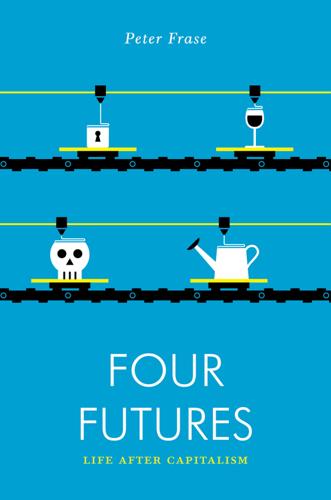
Four Futures: Life After Capitalism
by
Peter Frase
Published 10 Mar 2015
But it also means something even more radical: erasing the distinction between what counts as a business and what counts as a collective leisure activity. Only in that situation might we find that “labor has become not only a means of life but life’s prime want.” In that case, work wouldn’t be work at all any more, it would be what we actually choose to do with our free time. Then we could all obey the injunction to “do what you love”—not as a disingenuous apology for accepting exploitation, but as a real description of the state of existence. This is Marx as stoner philosopher: just do what you feel, man (from each according to his ability), and it’ll all be cool (to each according to his needs). Marx’s critics have often turned this passage against him, portraying it as a hopelessly improbable utopia.

Habitat
by
Lauren Liess
Published 27 Aug 2015
Original works of art, handcrafted items, and one-of-a-kind antiques all tell a story and are more interesting than mass-produced pieces. There’s luxury in free time. Many people say that the greatest luxury is time with their loved ones. Think about how you can design a home so precious time isn’t wasted on mundane tasks, so that more time can be spent doing what you love. Being organized saves time. Being able to pack for a trip quickly and efficiently because the closet is organized reduces stress. Cleaning up the kitchen is a breeze when there’s a place for everything. There is luxury in convenience and in having things close at hand. It all makes life easier.
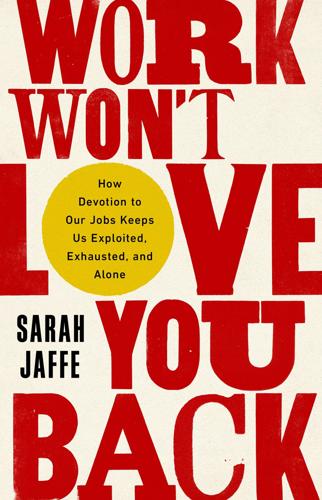
Work Won't Love You Back: How Devotion to Our Jobs Keeps Us Exploited, Exhausted, and Alone
by
Sarah Jaffe
Published 26 Jan 2021
We’re supposed to work for the love of it, and how dare we ask questions about the way our work is making other people rich while we struggle to pay rent and barely see our friends. Like so many things about late capitalism, the admonishment of a thousand inspirational social media posts to “do what you love and you’ll never work a day in your life” has become folk wisdom, its truthiness presumably everlasting—stretching back to our caveperson ancestors, who I suppose really enjoyed all that mammoth hunting or whatever. Instead of “never working,” the reality is that we work longer hours than ever, and we’re expected to be available even when technically off the clock.
…
“We trust you to get your work done,” the toys and perks imply. “You can decide how and when you do it and how and when you have fun.” With the feeling of autonomy comes the feeling that long work hours are a choice; they become a status symbol rather than a sign of unfreedom. As Miya Tokumitsu wrote, in Do What You Love , “The promise of worker autonomy is embedded in the ‘you’ of DWYL.” 35 But surveillance is as rampant in the tech industry as it is elsewhere. As early as the 1990s, Andrew Ross found that tech companies routinely monitored their workers. It shouldn’t be a surprise that companies like Facebook, who make their profits off extracting data, might want to keep an eye on their employees, or that the fallen WeWork, a real estate company that leased coworking spaces yet sold itself to investors as the techiest of tech companies, harvested a wellspring of data from the people who worked—and might have lived—in its buildings.
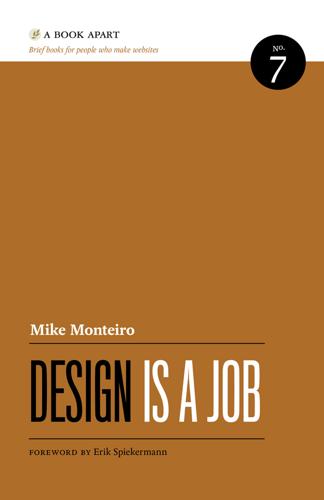
Design Is a Job
by
Mike Monteiro
Published 5 Mar 2012
Remember those print designers we used to laugh at? Well, the web finally caught up to where everything they knew about layout, color theory, and typography was essential. We weren’t doing anything new with design. Our technology just hadn’t caught up to what design was capable of yet. Getting good at doing what you love means having the confidence to recognize what you know, the humility to recognize what you don’t, and the courage to extend our respect to those who make our faults more visible. Clear roles To work together without tripping over each other and duplicating each others’ efforts you need to establish clear roles.

Letters From an Astrophysicist
by
Neil Degrasse Tyson
Published 7 Oct 2019
And I love the cosmos. Please help me, Neil, in any way you can. I will appreciate it. Jarrett Burgess Dear Jarrett, Thanks for that all-out appeal to connect with the cosmos. You express a dilemma that afflicts many in society: Should you do what you’re best at? Do what others expect of you? Or do what you love most? I love baseball (a few dozen of my Tweets are on the subject), so I’d be hard-pressed to tell you to take your 100 mph arm and study the universe. But I also happen to love what I do. And because I love what I do, I am self-driven and incentivized to make myself better at it every day—without limit.
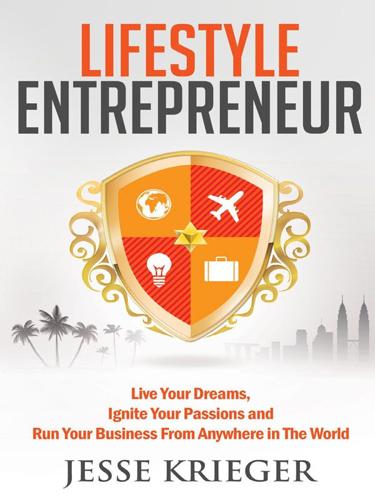
Lifestyle Entrepreneur: Live Your Dreams, Ignite Your Passions and Run Your Business From Anywhere in the World
by
Jesse Krieger
Published 2 Jun 2014
It can be difficult to see beyond the list of to-do items sitting on your desk and plan for a future that may seem out of reach or unrealistic. But don’t spend all your time putting out fires and managing your current situation at the expense of planning for a future that excites and empowers you! Take this time to imagine what your life would be like for 3-6 months, anywhere in the world, doing what you love. Think back to the Identity exercises Once you’ve defined a Creative Construct that suits you, costing it out and planning logistics becomes possible. Simply going through the planning process brings your dreams into focus and often times they are a lot more affordable and accessible than we initially believe.
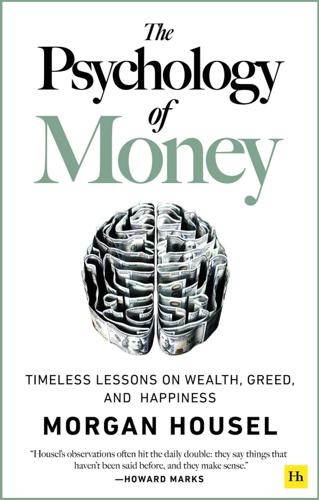
The Psychology of Money: Timeless Lessons on Wealth, Greed, and Happiness
by
Morgan Housel
Published 7 Sep 2020
There are few financial variables more correlated to performance than commitment to a strategy during its lean years—both the amount of performance and the odds of capturing it over a given period of time. The historical odds of making money in U.S. markets are 50/50 over one-day periods, 68% in one-year periods, 88% in 10-year periods, and (so far) 100% in 20-year periods. Anything that keeps you in the game has a quantifiable advantage. If you view “do what you love” as a guide to a happier life, it sounds like empty fortune cookie advice. If you view it as the thing providing the endurance necessary to put the quantifiable odds of success in your favor, you realize it should be the most important part of any financial strategy. Invest in a promising company you don’t care about, and you might enjoy it when everything’s going well.
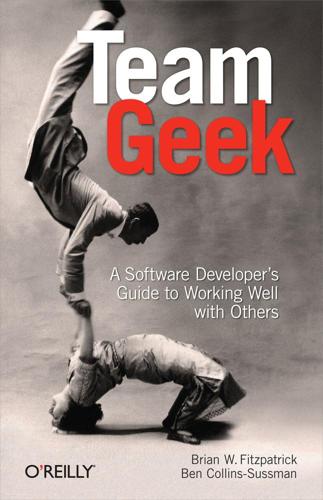
Team Geek
by
Brian W. Fitzpatrick
and
Ben Collins-Sussman
Published 6 Jul 2012
And finally, these principles apply directly to the way you interact with the most important group of all—the users of your software. If you keep HRT at the forefront of the way you work, you’ll have greater impact with considerably less effort. We think it’s the best way to end up spending the most amount of time doing what you love (shipping great software) and the least amount of time dealing with social conflicts, bureaucracy, and other human drama. A Final Thought It’s time to let the cat out of the bag. If you haven’t figured it out already, most of the advice in our book isn’t necessarily specific to software development.
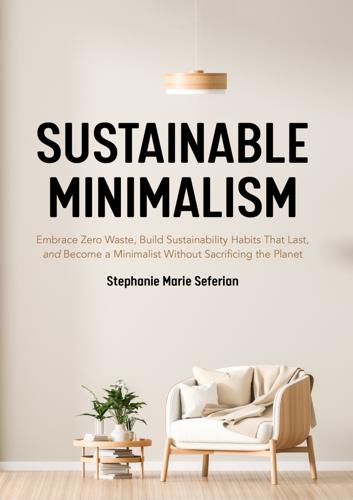
Sustainable Minimalism: Embrace Zero Waste, Build Sustainability Habits That Last, and Become a Minimalist Without Sacrificing the Planet (Green Housecleaning, Zero Waste Living)
by
Stephanie Marie Seferian
Published 19 Jan 2021
A decluttered home is much easier to maintain than a cluttered one. Americans spend an average of ninety minutes per day—or sixty hours per month—on household upkeep, including cleaning, tidying, and organizing.26 But when you own less, you have fewer items to dust, wipe down, organize, and put away. As a result, you naturally have more time do what you love with the people you adore. I consider decluttering to be a transformative event in the evolution of a sustainable minimalist. The purging process can be jarring—I myself felt profound shame as I stood over the piles of cheap junk I had mindlessly purchased. But that shame awakened me to an uncomfortable reality: I had bought many items I didn’t need, and for no good reason.
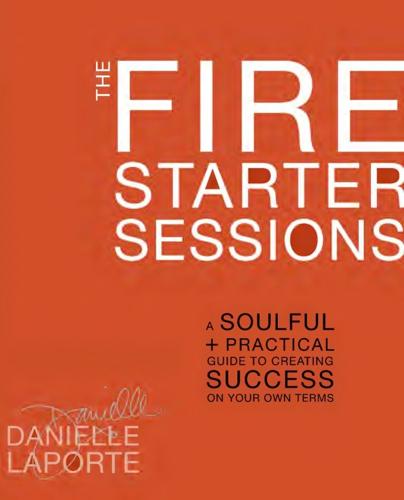
The Fire Starter Sessions: A Soulful + Practical Guide to Creating Success on Your Own Terms
by
Danielle Laporte
Published 16 Apr 2012
You can get psychoanalytical about why you’ve been molded into a certain character, but what’s most important for our liberation mission is that you’re aware that you can change your time persona. You can refuse to rush and still arrive on time; you can have all the energy you need to accomplish what you want and not be fried when you’re finished; you can find some grace in the less pleasurable must-dos, and you can fill your days doing what you love with people you cherish. WE KNOW YOU’RE BUSY. NOW SHUT UP ABOUT IT. So sorry, I’ve been busy. I’m just so busy with…I’ve been too busy to… Busy? Get in line. That’s life. That’s my life. That’s most people’s lives. Grown-up humans tend to be…busy. Add kids, jobs, or curveballs to the mix and you have all that much more of life to be busy about.
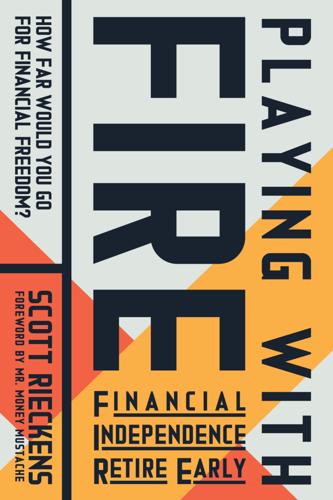
Playing With FIRE (Financial Independence Retire Early): How Far Would You Go for Financial Freedom?
by
Scott Rieckens
and
Mr. Money Mustache
Published 1 Jan 2019
I started by explaining why we’d left Coronado: how we were pursuing the idea of living more frugally as a way of maximizing our happiness, since people typically spend most of their money on expensive items and experiences but get most of their joy from simple, free things like spending time together. With FIRE, I explained, you create a high savings rate and invest your money so that you can spend your time doing what you love. At this point, I paused. Was I saying too much? I didn’t want to sound judgmental or possibly offend these guys, the way these conversations had gone in Seattle. FAMILY AND FRUGALITY One day in late October, Taylor and I invited my cousin Jared and 137 PLAYING WITH FIRE 138 Jared looked at me, confused.
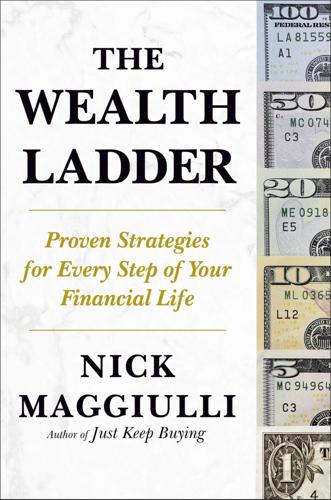
The Wealth Ladder: Proven Strategies for Every Step of Your Financial Life
by
Nick Maggiulli
Published 22 Jul 2025
All of these are related to your mental wealth and how you experience the world on a day-to-day basis. Though there are many different components of mental wealth, let’s focus on work, stress, and self-esteem. If you can improve these three areas of your life, your mental wealth will grow considerably. As the saying goes, “Do what you love and you’ll never have to work a day in your life.” Work can be one of the most fulfilling and important aspects of existence. It’s how we support ourselves. It’s how we support our loved ones. And, for many of us, it’s a crucial part of our identity. Work is how we relate to the world and how we fit into society.
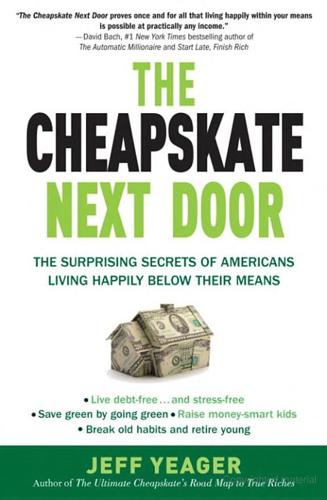
The Cheapskate Next Door: The Surprising Secrets of Americans Living Happily Below Their Means
by
Jeff Yeager
Published 8 Jun 2010
I love being a schoolteacher, but, better yet, I love having my wife be able to stay home with our daughters. We may not earn a large income, but we are very wealthy because we get to do what we want to in life.” Ironically, not only can living below your means be the key to being able to afford to do what you love for a living, but cheapskates often told me that—because they’re happy in their jobs—they tend to be less tempted to use shopping as “therapy” or to mistake money and stuff for true happiness. “Because I have a job that fulfills me, I do not need external or materialistic things to make me feel happy and content,” Danny Kofke said.
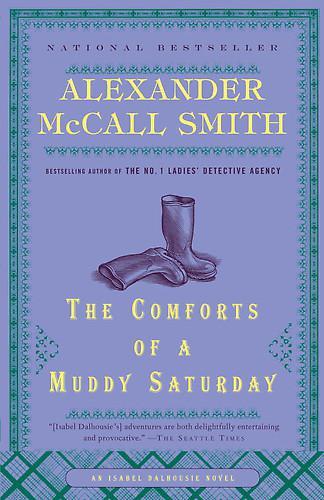
The Comforts of a Muddy Saturday
by
Alexander McCall Smith
Published 22 Sep 2008
He pointed to a clutter of toy vehicles on the floor: a fire engine, a tractor. “He’s going to be a mechanic, I think. Or an engineer.” Charlie started to crawl away, and Isabel intercepted him. “Not a musician?” “Who would be a musician?” Jamie said, beginning to pick up the toys. “Years of practising. Awful hours. No money…” Isabel was cuddling Charlie. “But you do what you love doing,” she said over her shoulder. “How many people can say that?” “Quite a few, I suspect,” said Jamie. “Most doctors like doctoring, don’t they? And most lawyers like arguing—or at least the ones I know do. And you hear about pilots saying that they get a real high from being up there above the clouds.
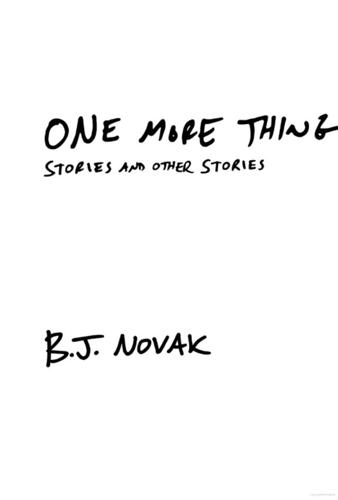
One More Thing: Stories and Other Stories
by
B. J. Novak
Published 4 Feb 2014
There’s so much going on!” Nana took a drag from the live half of a cigarette, which she had neatly hidden between her fingers by the doorknob. “It’s funny, isn’t it?” said Nana. “You have infinite time here, and there are infinite things to do, but you still don’t end up doing much of it. You do what you love most, over and over.” She took another breath of smoke, which couldn’t kill her now. “There’s something I think about sometimes, when I’m walking through the town, looking at the different concerts. So many of them were so big in their time, and people loved them, but maybe it’s just ’cause that was all they had, you know?
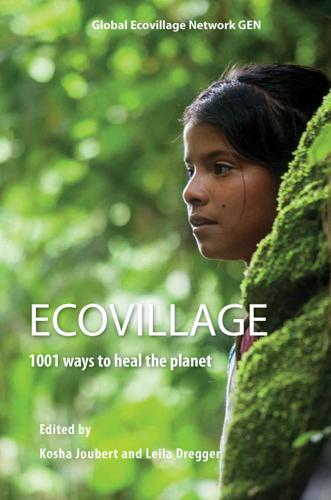
ECOVILLAGE: 1001 ways to heal the planet
by
Ecovillage 1001 Ways to Heal the Planet-Triarchy Press Ltd (2015)
Published 30 Jun 2015
In essence this means that if we tune in to what the universe wants to happen and focus our inner work to align with that intention, then the resources to realise these projects are more likely to be manifested. From the construction of the art studios, Community Centre and Universal Hall in the 1970s, through the purchase of the Caravan Park in 1983, to the more recent manifestation of the widely acclaimed Moray Art Centre, stories of these laws in action are legion. ‘Do what you love and the money will come’, or ‘Feel the fear and do it anyway’ are everyday descriptions of these same laws in action. It is impossible to think of the Findhorn Foundation’s unfolding history in the absence of the application of this core principle. It is important to note that this is not the same as simply saying you will get whatever you wish for.
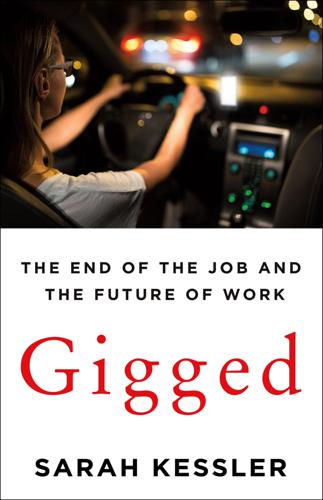
Gigged: The End of the Job and the Future of Work
by
Sarah Kessler
Published 11 Jun 2018
Try Freelancing on Fiverr,” advised a Yahoo news headline during the government shutdown of 2013.26 Fiverr was so named because, at launch, it asked workers to offer their services for a flat rate of $5 (workers now can set different rates). You could use Fiverr, the startup’s founder explained, to make money doing what you love in your spare time. Like 75% of people surveyed in a Fiverr-sponsored poll, the deal sounded pretty good to me.27 But that was before I realized that 4,786 other workers on Fiverr had, like me, offered to proofread papers for $5. My profile was nowhere to be found among the first several pages of the site’s search results for the service.

Bird by Bird: Some Instructions on Writing and Life
by
Anne Lamott
Published 1 Jan 1994
It has happened to me, and if you get published, it is almost certainly going to happen to you. But the fact of publication is the acknowledgment from the community that you did your writing right. You acquire a rank that you never lose. Now you’re a published writer, and you are in that rare position of getting to make a living, such as it is, doing what you love best. That knowledge does bring you a quiet joy. But eventually you have to sit down like every other writer and face the blank page. The beginnings of a second or third book are full of spirit and confidence because you have been published, and false starts and terror because now you have to prove yourself again.
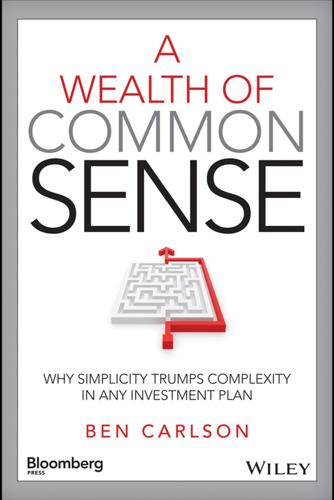
A Wealth of Common Sense: Why Simplicity Trumps Complexity in Any Investment Plan
by
Ben Carlson
Published 14 May 2015
If you understand how the markets work, and more importantly how the human brain works, the results over time can be impressive. The process does not have to be based on degree of difficulty. The goal is to gain financial independence, pay for your child's college education, go on more vacations, have more time to do what you love, or whatever your needs and desires may be. Remember, the markets are not just about building wealth and making money. They're a tool for your desires about creating freedom, time, memories, and peace of mind. These things are all attainable, as long as you have a plan in place and are able to get out of your own way.
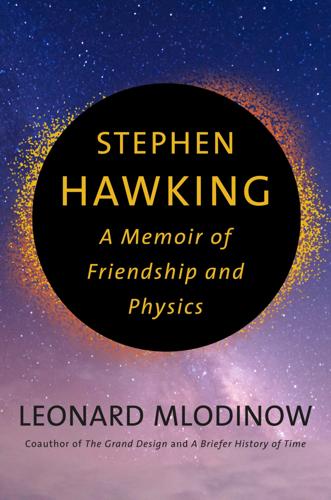
Stephen Hawking
by
Leonard Mlodinow
Published 8 Sep 2020
Stephen, then forty-three, was as much a genius as any of those genius grant recipients but not yet a celebrity—he’d just started to write A Brief History—and he really did need the money. In physics, you don’t get paid for what you discover. You publish your work, and in exchange you get a tenured position and the satisfaction of having figured something out. You are supposed to be content with a modest salary and a secure job that pays you to do what you love. In 1985 Stephen’s annual salary was about $25,000. Those earnings don’t go far if you have ALS. Fortunately, Stephen’s work on Hawking radiation had elevated him in the physics community by then, if not in the world at large. His name had already been on the map, but after Hawking radiation it was written in the largest of fonts, and so the MacArthur Foundation was happy to help and gave the money to Cambridge University to administer.
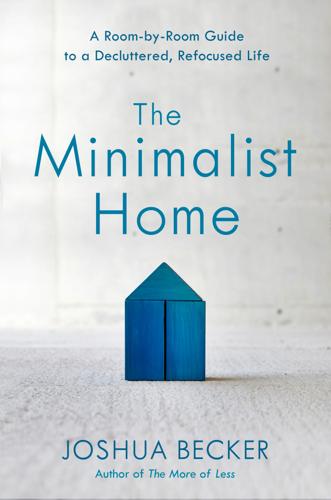
The Minimalist Home: A Room-By-Room Guide to a Decluttered, Refocused Life
by
Joshua Becker
Published 18 Dec 2018
Focus more on who you are becoming. #minimalisthome Where do you keep your hobby or craft materials? Maybe you have a room dedicated to this purpose, or at least a part of a room. You’ve probably also got a cabinet or closet where you store your supplies so that you can pull them out when you’ve got some free time to do what you love. How do you minimize these things? First, make a distinction between (1) hobbies or arts and crafts that you actually do; and (2) those that you used to do, or thought that you would do, but don’t really do these days. Let’s take a look at the second case first. If you’ve got supplies for a hobby or craft that you don’t pursue, then I can understand why it might be emotionally hard for you to get rid of the stuff.

Happy-Go-Lucky
by
David Sedaris
Published 30 May 2022
Our commencement speaker was a conceptual artist named Vito Acconci. He’d done a lot but was best known for constructing a wooden ramp in a New York gallery. Then he hid beneath it and masturbated for several weeks without stopping. “Well, you could do that!” my mother said when I explained to her who he was. “I mean, isn’t that the goal? Doing what you love and getting paid for it!” I don’t think she understood a word of the man’s commencement address. I’m not sure I did either. In preparing for today, I asked myself what he might have said that would have had an effect on my future. I figured my post-college life would be pretty much like the one I’d been leading for the past decade: work some little job I didn’t have to put much thought into, then come home and do my own stuff.
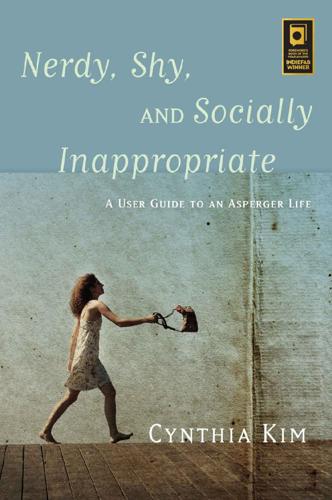
Nerdy, Shy, and Socially Inappropriate
by
Cynthia Kim
Published 20 Sep 2014
I’ve read and heard about a lot of Aspies who’ve done the same with their lifelong special interests. It’s certainly not possible for everyone with Asperger’s to turn a special interest into a job or career, but when it does work out that way, you get to be one of those lucky people who earns a living doing what you love. 7 Sensory Seeking and Sensitivities I have difficulty resting when I’m at rest. My body was born to be in motion. I slouch. I splay. I pin one foot under the other. I pull one knee up, then two, hugging my shins with a hand or arm. I sit on my foot, ankle, or calf. I sit cross-legged, even on chairs.
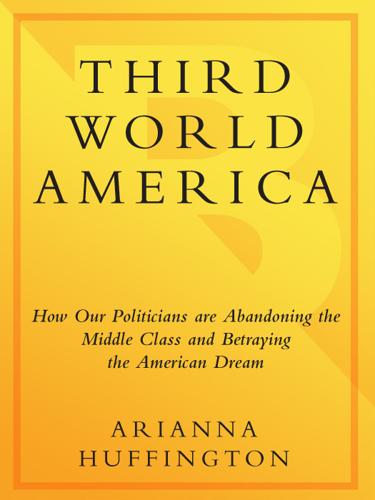
Third World America: How Our Politicians Are Abandoning the Middle Class and Betraying the American Dream
by
Arianna Huffington
Published 7 Sep 2010
“Ultimately,” he says, “it’s not about a dip in corporate profits, but a change in corporate attitude—a change that means no one’s job is safe, and never will be, ever again.” It’s one of the reasons he decided to start his own company, NaviDate, a data-driven twist on online dating sites: “It’s no longer a trade-off between doing what you love and having stability. Stability is long gone, so you better do something you love!” Achieving middle-class stability has always been a big part of the American Dream, but, as Blackburn notes, mobility now is increasingly one way: “The plateaus of each step, which can be a great place to stop a bit and catch your breath, are gone.
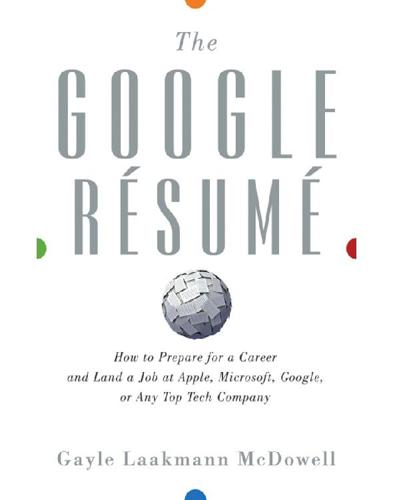
The Google Resume: How to Prepare for a Career and Land a Job at Apple, Microsoft, Google, or Any Top Tech Company
by
Gayle Laakmann Mcdowell
Published 25 Jan 2011
You were hired in to be a tester, and now you’re helping look for office space. Well, tough. Someone’s got to do it. Start-ups don’t have the time and money to hire a specialist for each and every task, so employees are expected to chip in on projects that are outside of their roles. That may mean you spend less time doing what you love and more time doing what the company wants you to do. Low pay. With very few exceptions, start-ups tend to pay below-industry salary and compensate for the difference with stock options. If the company fails (which it usually does), your stock options are worth nothing. Limited credibility.
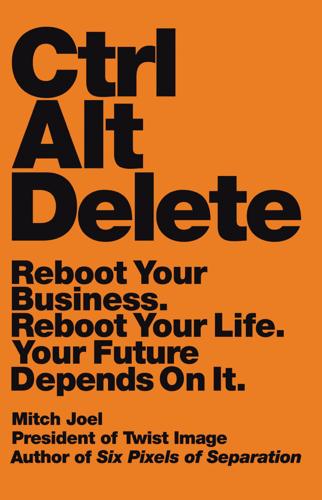
Ctrl Alt Delete: Reboot Your Business. Reboot Your Life. Your Future Depends on It.
by
Mitch Joel
Published 20 May 2013
In this new world, the squiggle is about not being afraid of the big stuff within whatever industry you serve. If you’re not thinking about the bigger problems that face your industry, someone else is. Squiggle… uncover and go after the big ideas. Lesson #3—Get squiggly. It’s not about doing what you love or being passionate about the work that you do, but about recognizing that you may be stuck or afraid to change simply because of the decisions that you made and followed back in high school and university (or because your predecessor did things a certain way). They say that you can’t teach an old dog new tricks.
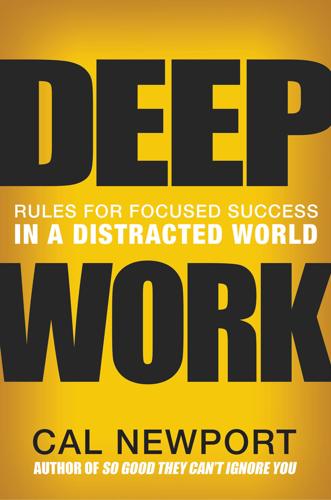
Deep Work: Rules for Focused Success in a Distracted World
by
Cal Newport
Published 5 Jan 2016
If you focus on a cancer diagnosis, you and your life become unhappy and dark, but if you focus instead on an evening martini, you and your life become more pleasant—even though the circumstances in both scenarios are the same. As Gallagher summarizes: “Who you are, what you think, feel, and do, what you love—is the sum of what you focus on.” In Rapt, Gallagher surveys the research supporting this understanding of the mind. She cites, for example, the University of North Carolina psychologist Barbara Fredrickson: a researcher who specializes in the cognitive appraisal of emotions. After a bad or disrupting occurrence in your life, Fredrickson’s research shows, what you choose to focus on exerts significant leverage on your attitude going forward.
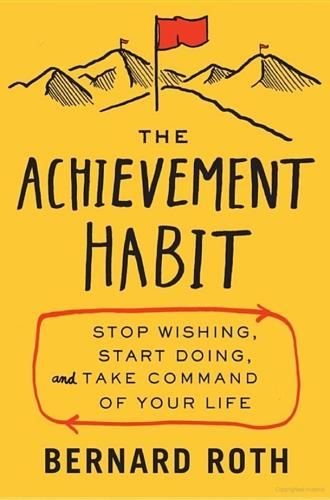
The Achievement Habit: Stop Wishing, Start Doing, and Take Command of Your Life
by
Bernard Roth
Published 6 Jul 2015
This also means that we have the power to alter our perceptions, revising perceptions that bring us down and enhancing those that help us. Your outlook on life is deeply entwined in your propensity for success. Miserable blowhards can achieve, however they still wind up miserable. That’s not success. Success is doing what you love and being happy about it. To learn how to get a better handle on your perceptions, emotions, and behavior, it is useful to look at how you think. YOU GIVE EVERYTHING ITS MEANING Mike, a graduate student in my class at Stanford University, planned to design a musical instrument for that summer’s Burning Man festival as his project.
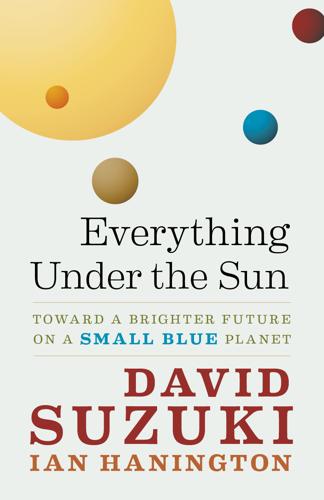
Everything Under the Sun: Toward a Brighter Future on a Small Blue Planet
by
Ian Hanington
Published 13 May 2012
We can continue to burn things until there is nothing left to burn, and we can continue to allow fossil-fuel interests to spew pollution into the air without cost, but where will that leave us? Maybe scrounging for roots and berries and huddling in caves for shelter. How to become an environmentalist YOUNG PEOPLE OFTEN ask me what they have to do to be environmentalists. They want to make a difference. My answer is, “Follow your heart. Do what you love most and pursue it with passion.” You see, environmentalism isn’t a profession or discipline; it’s a way of seeing our place in the world. It’s recognizing that we live on a planet where everything, including us, is exquisitely interconnected with and interdependent on everything else. Life-giving water moves from ocean to air to land, across the globe, linking all life through the hydrologic cycle.
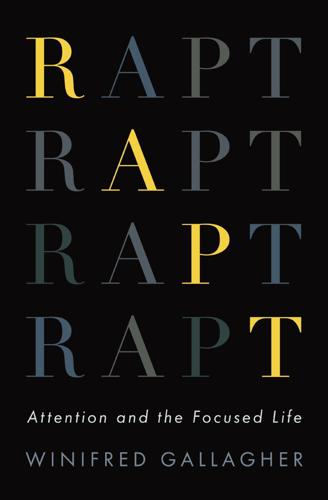
Rapt: Attention and the Focused Life
by
Winifred Gallagher
Published 9 Mar 2009
Five years ago, a common-enough crisis plunged me into a study of the nature of experience. More important, this experiment led me to cutting-edge scientific research and a psychological version of what physicists trying to explain the universe call a “grand unified theory” or “theory of everything”: your life—who you are, what you think, feel, and do, what you love—is the sum of what you focus on. That your experience largely depends on the material objects and mental subjects that you choose to pay attention to or ignore is not an imaginative notion, but a physiological fact. When you focus on a STOP sign or a sonnet, a waft of perfume or a stock-market tip, your brain registers that “target,” which enables it to affect your behavior.
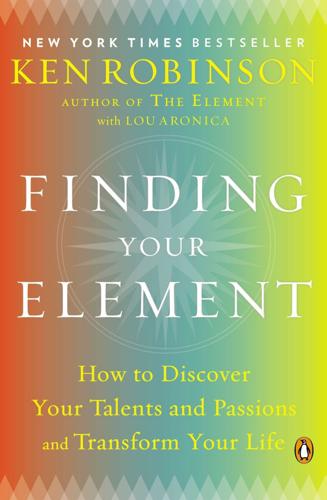
Finding Your Element: How to Discover Your Talents and Passions and Transform Your Life
by
Ken Robinson
and
Lou Aronica
Published 14 Jul 2013
Every day she gets to be among books and to inspire children to read and love them, too. She’s delighted with herself and her life. As you look for your Element, you may encounter something you’ve never done before and have an epiphany. Equally, you may discover that you’ve already been doing what you love for a long time without realizing it, like falling in love with an old friend. Of course, discovering that you love something that you’ve been taking for granted is an epiphany all of its own. My wife, Thérèse, had that experience. She has recently published her first novel, India’s Summer.
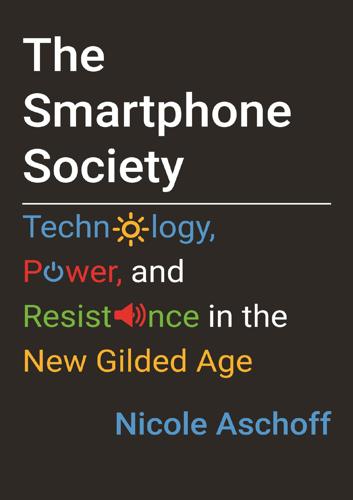
The Smartphone Society
by
Nicole Aschoff
Dobson, “Inside the Verdura Resort in Sicily, Home to Google’s Top Secret Summer Camp.” 55. Rushe, “Scholar Says Google Criticism Cost Him Job.” 56. Foroohar, “Big Tech’s Grip.” 57. Lears, Rebirth of a Nation, 298. Chapter 3: New Frontier 1. Bennett, “Kim Kardashian Just Wants to Be Seen.” 2. Kardashian, Selfish. 3. Gary Vaynerchuk, “Do What You Love (No Excuses!),” Ted Talk, Web 2.0 Expo, September 2008. 4. Burgess, Marwick, and Poell, SAGE Handbook of Social Media, introduction. 5. Rojek, Presumed Intimacy, 135. 6. Ling, New Tech, New Ties, 43. 7. Lewis and Jacobs, “How Business Is Capitalising on the Millennial Instagram Obsession.” 8.
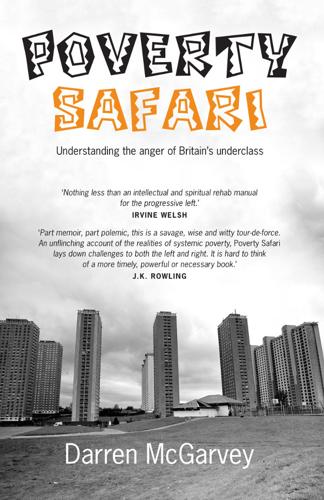
Poverty Safari: Understanding the Anger of Britain's Underclass
by
Darren McGarvey
Published 2 Nov 2017
In communities like this it has created a fertile bed of resentment from which anger and apathy have grown. But you wouldn’t know from talking to these kids. The interior of The Barn is brightly lit and colourfully decorated. Life affirming slogans adorn the walls. One reads: ‘Don’t aim for success if you want it; just do what you love and believe in, and it will come naturally.’ Situated in the middle on the main hall are funkily coloured couches where teenagers – who recently constituted their own youth committee – chat, while the younger kids dart around between air hockey, table tennis, pool, snooker, baking, football and even a sectioned off computer room for Xbox enthusiasts.

Yes Please
by
Amy Poehler
My dad drove Kara’s jeep across the country loaded with our stuff and I settled quickly into a life of waitressing and taking classes. It was an awesome time. I was extremely poor and had little to do. I painted my tiny bedroom Van Gogh Starry Night Purple, and I smoked a lot of pot. I would ride my bike to shows while listening to the Beastie Boys. I was twenty-two and I had found what I loved. Watching great people do what you love is a good way to start learning how to do it yourself. Chicago was swollen with talent at the time. The first Second City show I ever saw was Amy Sedaris’s last. The entire cast was saying good-bye to her and she was doing all of her best sketches. Amy Sedaris is the Cindy Sherman of comedy.

Alone on the Wall: Alex Honnold and the Ultimate Limits of Adventure
by
Alex Honnold
and
David Roberts
Published 2 Nov 2015
• • • • From the little-known climber who once hoped that, as he put it, the attention of a sponsor might someday win him a free pair of rock shoes, Alex has by now developed into a thoroughgoing professional. One of his favorite quotes comes from the mouth of basketball legend Julius Erving: “Being a pro means doing what you love even on the days you don’t love it.” Still, on any given Sunday, Alex would rather be climbing than signing autographs. In the spring of 2014, he agreed to serve on the film jury of the Trento (Italy) Film Festival. Only when he saw the schedule of presentations did he realize what he’d gotten himself into.
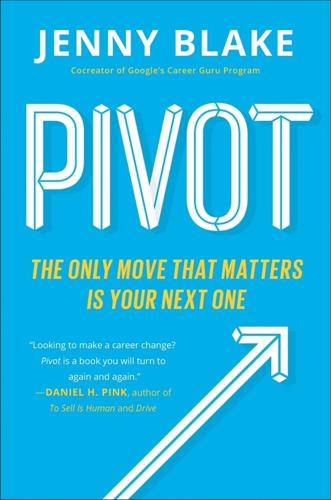
Pivot: The Only Move That Matters Is Your Next One
by
Jenny Blake
Published 14 Jul 2016
—Shane Snow, author of Smartcuts and cofounder of Contently “Wondering what your next move is? Read this book! Jenny Blake is one of the wisest and freshest voices on the subject of career development, and this is her best work yet. In Pivot, you will hear the good news: that you can get paid to do what you love. It may not look like what you thought, and it may require some personal growth, but you can find the work you were meant to do. You just have to pivot.” —Jeff Goins, author of The Art of Work “Are the tectonic plates below your sturdy career suddenly splitting into a deep abyss of unknown?
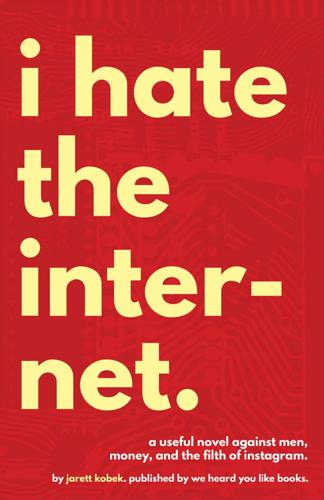
I Hate the Internet: A Novel
by
Jarett Kobek
Published 3 Nov 2016
This billboard advertised NetApp, which was a company that offered remote data storage to other companies. Back in the 1990s, NetApp had raised funding from the venture capital firm Sequoia Capital. (7) #1 for a Reason This billboard advertised Trend Micro Inc, a Japanese company that sold consumer and enterprise level security software and services. (8) IMAGINE 30 YEARS OR MORE OF DOING WHAT YOU LOVE. Let’s get ready for a longer retirement. This billboard advertised retirement and money management services with Prudential Insurance Company of America. (9) iPad This billboard advertised the iPad. The iPad had changed everything. (10) New Homes at Candlestick Cove With 2-Car Garages This billboard advertised condos for sale in the low $700,000s
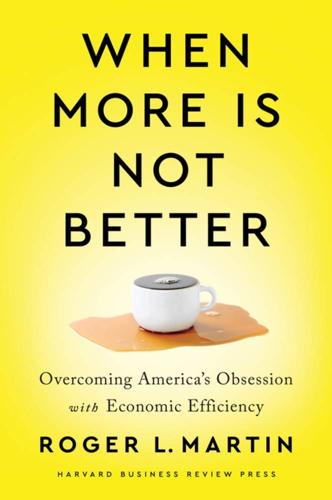
When More Is Not Better: Overcoming America's Obsession With Economic Efficiency
by
Roger L. Martin
Published 28 Sep 2020
But as much as she loved teaching her kindergarten kids, she found the economics of doing so in the modern US economy to be more challenging than she had ever imagined growing up, especially now that she was a single mother. Sarah is not alone. Amy, a thirty-two-year-old yoga instructor working in Shreveport, Louisiana, had the same sense of frustration: “I grew up understanding the American Dream as: you get your education and do what you love, and you can make a living out of it. I just don’t think it’s realistic.” My colleagues and I met Sarah and Amy in the fall of 2015, a third of the way through the Martin Prosperity Institute’s six-year project on the future of democratic capitalism in America. As part of the institute’s overall work, we conducted in-depth interviews with Americans like them around the country, across a wide variety of occupations, to better understand what they thought about their country and its political economy.
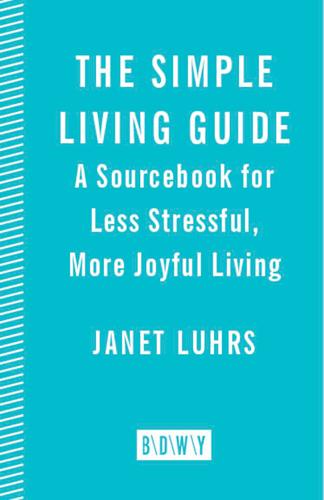
The Simple Living Guide
by
Janet Luhrs
Published 1 Apr 2014
Another way to turn your passion into a job is by volunteering first. Cecile began another career as director of Women’s Studies at a community college after working first as an unpaid intern. She created the job as part of her internship. “When you follow your passion, you don’t know where it’s going to lead,” Cecile says. “I always tell people to do what you love to do, then figure out how to earn a living from it.” Get Paid for Your Passion There are two ways to get paid for your passion: make it your full-time career or a part-time sideline. Beth Steinkoning loves to sail and has done two things that enable her to sail frequently. The first is that she and her four-year-old son live on a sailboat that Beth owns.
…
I’m doing what I believe in—helping people to master change in a positive way, without the adversarial process. I’m dealing with positive human issues of people making choices to express who they are instead of trying to conform to other people’s wishes.” Deborah’s ideas of a fulfilled life have changed since she made her transition. “I had always thought that if you were doing what you love, you can’t do too much of it. Now I realize that even if you love what you do, it can take over your life and whack you way out of balance. “I noticed that when I wasn’t getting paid well it was easier to control than when I started to earn good fees. Then it seemed like a shame to turn down all that money when I was enjoying what I was doing.
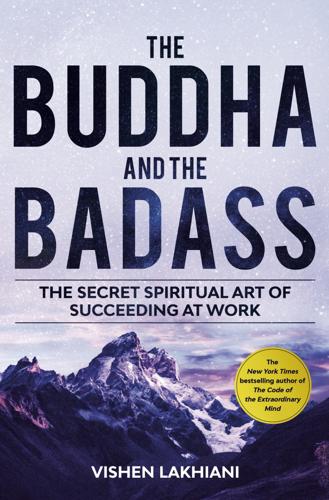
The Buddha and the Badass: The Secret Spiritual Art of Succeeding at Work
by
Vishen Lakhiani
Published 14 Sep 2020
To me, it’s a ‘portal of love.’ I’m doing what I love right now. Communicating with the people I love. Writing about what I love. Sharing on social media with more people around the world who I love. Sending cheesy videos to friends and family I love. I’m not disconnected—I’m deeply connected. “When you do what you love, you never have to work a day in your life. So thank you, and I get your concern, and you’re wonderful to check in on me, but I choose to experience this moment here on this cliff doing exactly what I’m doing now. It’s what I love.” “Wow,” she said. “I think I just learned something there.”
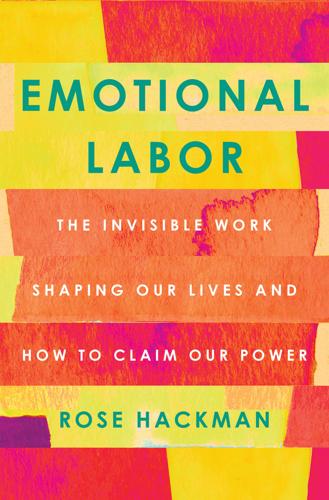
Emotional Labor: The Invisible Work Shaping Our Lives and How to Claim Our Power
by
Rose Hackman
Published 27 Mar 2023
,” The Washington Post, June 20, 2019, accessed April 6, 2021, https://www.washingtonpost.com/graphics/2019/opinions/pride-for-sale/; Natasha Dailey, “Coca-Cola, Delta, United, and 7 Other Companies Blast Georgia’s New Voting Law in a Wave of Corporate Backlash,” April 5, 2021, accessed April 6, 2021, https://www.businessinsider.com/apple-united-delta-coke-companies-against-georgia-voting-law-elections-2021-4. 11. Jillian D’Onfro and Lucy England, “An Inside Look at Google’s Best Employee Perks,” Inc.com, September 21, 2015, https://www.inc.com/business-insider/best-google-benefits.html. 12. Marsha Sinetar, Do What You Love, the Money Will Follow: Discovering Your Right Livelihood (New York: Dell, 1989). 13. Eva Illouz, Cold Intimacies: The Making of Emotional Capitalism (Malden, Mass.: Polity Press, 2007). 14. Shankar Vedantam et al., “Emotional Currency: How Money Shapes Human Relationships,” NPR, January 13, 2020, https://www.npr.org/2020/01/10/795246685/emotional-currency-how-money-shapes-human-relationships. 15.
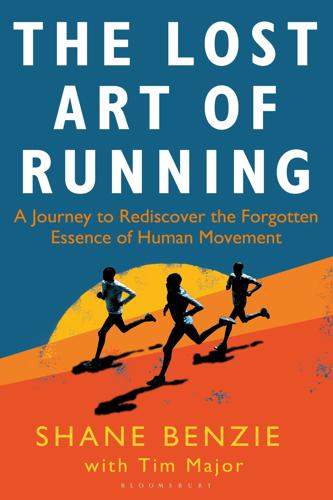
The Lost Art of Running: A Journey to Rediscover the Forgotten Essence of Human Movement
by
Shane Benzie
and
Tim Major
Published 19 Aug 2020
About getting even more in touch with what makes you human so that you can do what humans are designed to do in the way that we are designed to do it. This is about rediscovering the techniques that we, as a species, are physically built and mentally wired to undertake. It’s about freeing you to do what you love, so that you can feel an even deeper connection with yourself and the world. So that you can do it more often. Be injured less. Go further. Go faster. Feel that flow. Enhance, rather than detract from, your love of running. Running is an art. Yes, there are ways to do it that will still be like running.
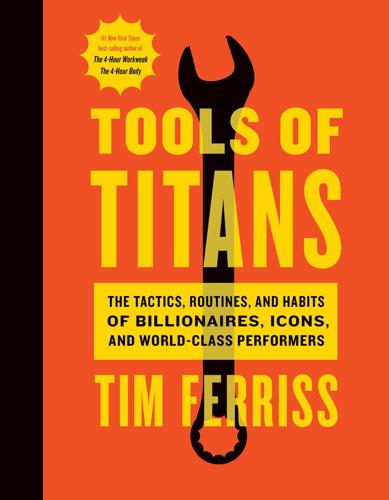
Tools of Titans: The Tactics, Routines, and Habits of Billionaires, Icons, and World-Class Performers
by
Timothy Ferriss
Published 6 Dec 2016
She fell in love with something at age 6 and she didn’t stop tap dancing until the day before she died at age 92. She died on a Monday morning, and the first thing we had to do was call her 100 students to say she wasn’t going to make class that day. “What is the ultimate quantification of success? For me, it’s not how much time you spend doing what you love. It’s how little time you spend doing what you hate. And this woman spent all day, every day doing what she loved.” Spirit animal: Rhino * * * Morgan Spurlock Morgan Spurlock (TW: @MorganSpurlock, morganspurlock.com) is an Oscar-nominated documentary filmmaker based in New York.
…
In The 4-Hour Body, there was one line that drove copyeditors crazy: “Because I’m a man, meng.” It’s a long story. ✸ Out of more than 4,600 articles on Brain Pickings, what are Maria’s starting recommendations? “The Shortness of Life: Seneca on Busyness and the Art of Living Wide Rather Than Living Long” “How to Find Your Purpose and Do What You Love” “9 Learnings from 9 Years of Brain Pickings” Anything about Alan Watts: “Alan Watts has changed my life. I’ve written about him quite a bit.” ✸ What is the worst advice you see or hear given in your trade or area of expertise? “‘Follow your dreams.’ It’s impossible to do without self-knowledge, which takes years.
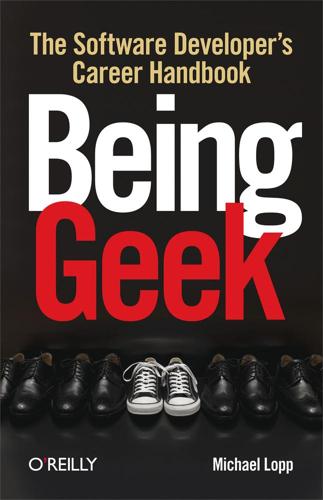
Being Geek: The Software Developer's Career Handbook
by
Michael Lopp
Published 20 Jul 2010
It wasn't the recursive simplicity; it was the discovery that with imagination there were approaches that were wildly more efficient—and simpler. Whether you're formally trained as a computer science nerd or not, you've learned the value of efficiency—to make each action that you take mean something. You know that when you're efficient, you have more time to do what you love. This is why I have a simple requirement that any tool I rely on has complete keyboard support. I will fall back on using the mouse for one-off activities, but for any action I take that I know I'm going to do again, my question is, "How do I make this action cost less?" Think of it like this.
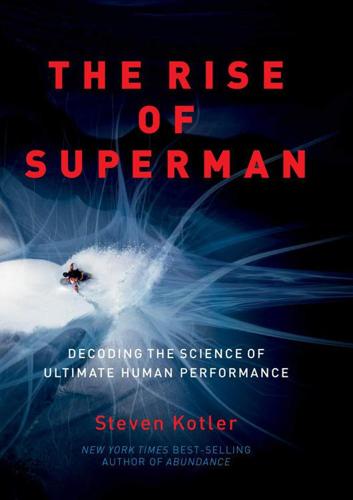
The Rise of Superman: Decoding the Science of Ultimate Human Performance
by
Steven Kotler
Published 4 Mar 2014
Divers didn’t recover his body for twenty-eight days. Both Daisher and McConkey took his passing hard, but action and adventure athletes have a different relationship with death. “When Frank died,” recounts Daisher, “everybody told us it was time to stop BASE jumping. But that’s not what Frank would have wanted. He believed in doing what you love and we weren’t going back. After he died, I quit my job and moved to the Drop Zone (a Tahoe-area skydiving operation). I lived in a tent and packed chutes. Shane and I spent all our time trying to piece together Frank’s knowledge. I would tell him something Frank had taught me, and he would tell me something Frank had taught him, and pretty soon another two-dollar bet was born.”
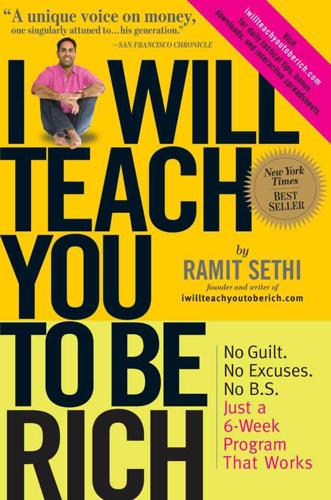
I Will Teach You To Be Rich
by
Sethi, Ramit
Published 22 Mar 2009
If you’re even considering buying individual stocks because you think you can beat the market or it’s sexier, I want you to take all your money, put it in a big Ziploc bag along with this book, and light it on fire. Just save the middleman. If you don’t want to spend a billion years managing your money and you’re satisfied with the 85 Percent Solution of investing in a convenient fund that’s good enough and will free you up to live your life and do what you love, then go for a lifecycle fund. If you’re more of a personal-finance geek, are willing to spend some time on your finances, and want more control, then choose index funds. Whichever category you fall into, you’ll want to figure out exactly what to invest in. Let’s get started. The Investment Most Americans Have: Your 401(k) As we discussed in Chapter 3, if you get a 401(k) match from your employer, you need to pay into in your 401(k) before you do any other investing.
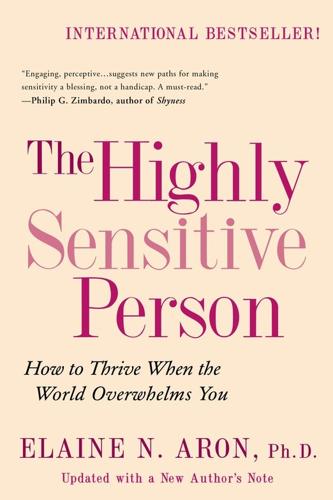
The Highly Sensitive Person: How to Thrive When the World Overwhelms You
by
Elaine N. Aron
Published 1 Dec 2013
She will become an empty windbag no one listens to. But how can one make money and still follow a calling? One way is to seek the point where the path directed by our greatest bliss crosses that directed by the world’s greatest need—that is, what it is willing to pay for. At this intersection you will earn money for doing what you love. Actually, the relation of a person’s vocation to his or her paying job can be quite varied and will change over a lifetime. Sometimes your job is just the way to make money; the vocation is pursued in your spare time. A fine example is Einstein’s developing the theory of relativity while he was a clerk in a patent office, happy to have mindless work so he could be free to think about what mattered to him.
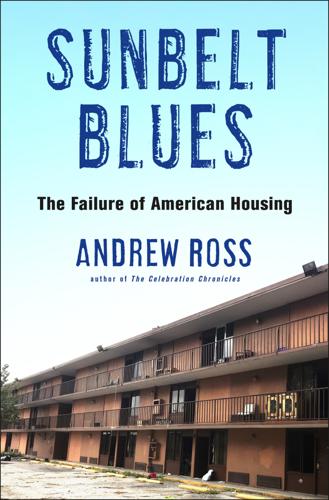
Sunbelt Blues: The Failure of American Housing
by
Andrew Ross
Published 25 Oct 2021
Gabrielle Russon, “Disney World Workers Endure Tourists Who Scream, Punch and Even Grope Them,” Orlando Sentinel, September 23, 2019, https://www.orlandosentinel.com/business/os-bz-disney-employees-abuse-20190923-zy7o3lka3fhmhfeohjicftx74a-story.html. 19. Arlie Russell Hochschild, The Managed Heart: Commercialization of Human Feeling (Berkeley: University of California Press, 1983). 20. Brooke Erin Duffy, (Not) Getting Paid to Do What You Love: Gender, Social Media, and Aspirational Work (New Haven, CT: Yale University Press, 2017). 21. The solidarity was bicoastal. The California resort unions won a $15 agreement at Disneyland in late July 2018, which put pressure on Disney World management to concede over the next month. 22.
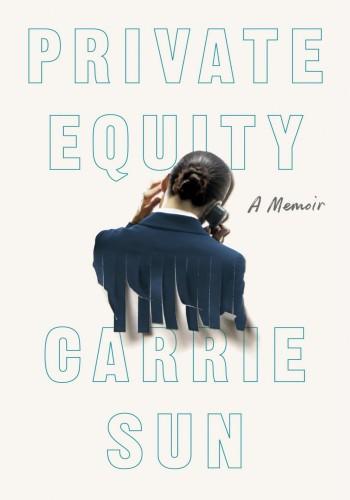
Private Equity: A Memoir
by
Carrie Sun
Published 13 Feb 2024
I shook my head, explaining that I had already been on the investment side, how in those years I had come to discover that I loved people and stories a bit more than I did numbers or finance. I mentioned an essay by one of the founders of Y Combinator, a premier start-up accelerator, on how to do what you love; later, I followed that up with an email to Gabe exploring quotes from the essay on how “prestige is just fossilized inspiration” and “you have to like what you do enough that the concept of ‘spare time’ seems mistaken.” In my spare time I wrote, read, and planned. Seeing how the first two weren’t exactly moneymakers, I thought it a smidge too perfect that I could get paid (well) to plan someone else’s life.
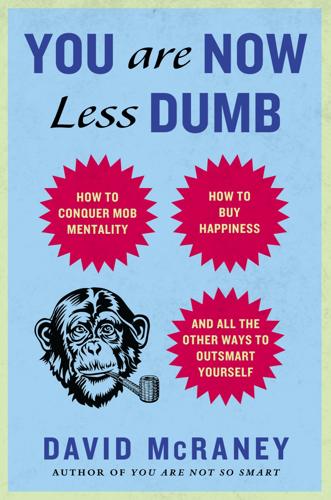
You Are Now Less Dumb: How to Conquer Mob Mentality, How to Buy Happiness, and All the Other Ways to Outsmart Yourself
by
David McRaney
Published 29 Jul 2013
As an adult human being, you have the gift of reflection and regret. You can predict a future place where you must admit your efforts were in vain, your losses permanent, and when you accept the truth, it is going to hurt. 16. The Overjustification Effect THE MISCONCEPTION: There is nothing better in the world than getting paid to do what you love. THE TRUTH: Getting paid for doing what you already enjoy will sometimes cause your love for the task to wane because you attribute your motivation as coming from the reward, not your internal feelings. Money isn’t everything. Money can’t buy happiness. Don’t live someone else’s dream.
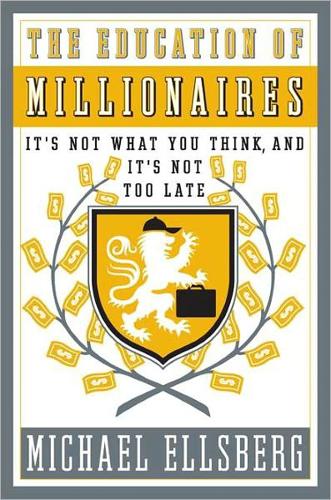
The Education of Millionaires: It's Not What You Think and It's Not Too Late
by
Michael Ellsberg
Published 15 Jan 2011
They want to work for themselves, creating value for other people on their terms—perhaps on a Wi-Fi-connected laptop from a mobile location. These people, young and old, read books like The Four-Hour Workweek: Escape 9–5, Live Anywhere, and Join the New Rich by Tim Ferriss, Escape from Cubicle Nation: From Corporate Prisoner to Thriving Entrepreneur by Pamela Slim, and Career Renegade: How to Make a Great Living Doing What You Love by Jonathan Fields. Daniel Pink, in Free Agent Nation: The Future of Working for Yourself, his 2001 book prophesying the current tidal wave of microentrepreneurialism, small business, and self-employment, calls them “self-employed knowledge workers, proprietors of home-based businesses . . . freelancers and e-lancers, independent contractors and independent professionals, micropreneurs and infopreneurs, part-time consultants . . . on-call troubleshooters, and full-time soloists.”9 These new kinds of opportunities, open to anyone who wants to pursue them, without any formal, traditional, or academic qualifications necessary to compete, have arisen largely because of technology.

Station Eleven
by
Emily St. John Mandel
Published 8 Sep 2014
She’s never been to the United States, although she’s lived within two hundred miles of the border all her life. He can see that she’s straining to imagine his life there, her thoughts probably a collage of scenes from movies and magazine shoots. “You love acting, don’t you?” “Yes. Usually I do.” “What a wonderful thing, to get paid for doing what you love,” she says, and he agrees with this. At the end of the meal she thanks him for paying the check and they leave together. Outside the air is cold, sunlight on dirty snow. Later he’ll remember this as a golden period when they could walk out of restaurants together without anyone taking pictures of them on the sidewalk.

A Year of Living Danishly: My Twelve Months Unearthing the Secrets of the World's Happiest Country
by
Helen Russell
Published 14 Sep 2015
‘A lot of people say that out here, people don’t bitch about work like they do at home. They don’t choose a profession based on how much they’re going to earn. They choose it based on what interests them. Education is free so anyone can train in whatever they want. You know you’re going to get taxed a lot anyway, so you may as well just focus on doing what you love, rather than what’s going to land you a massive salary.’ ‘So there’s less incentive to sacrifice career fulfilment for the almighty dollar?’ I ask. ‘Precisely – because the more you earn, the more tax you pay.’ He tells me about a word he’s been taught that encapsulates the Danish attitude to work: ‘arbejdsglæde’ – from ‘arbejde’ the Danish for ‘work’ and ‘glæde’ from the word for ‘happiness’.
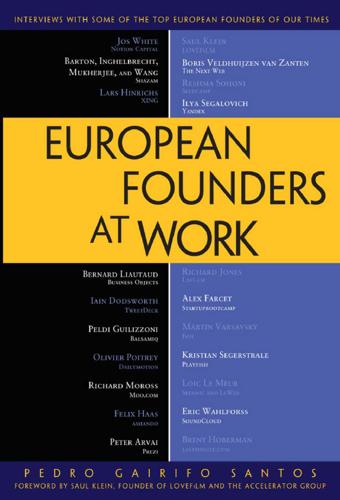
European Founders at Work
by
Pedro Gairifo Santos
Published 7 Nov 2011
I don’t want to grow too much. Santos: Okay. Makes sense. At that point, or even later, might you consider selling the company? Guilizzoni: I don’t know. Not any time soon. That’s never been the plan. I really dislike people who have exit strategies. I think that means you’re not committed to your idea or you’re not doing what you love, so you shouldn’t even start. But I also know that nothing is forever. I spent twelve years of my life doing a web site for the Ultimate Frisbee community, which was huge. It was maybe the biggest web site for Ultimate for many years, and I thought that was going to be something that I did forever.

The Boy Who Could Change the World: The Writings of Aaron Swartz
by
Aaron Swartz
and
Lawrence Lessig
Published 5 Jan 2016
Anders Ericsson, a psychology professor who studies “expert performance,” told the New York Times Magazine that “the most general claim” in his work “is that a lot of people believe there are some inherent limits they were born with. But there is surprisingly little hard evidence. . . .” The conclusion that follows, the NYTM notes, is that “when it comes to choosing a life path, you should do what you love—because if you don’t love it, you are unlikely to work hard enough to get very good. Most people naturally don’t like to do things they aren’t ‘good’ at. So they often give up, telling themselves they simply don’t possess the talent for math or skiing or the violin. But what they really lack is the desire to be good and to undertake the deliberate practice that would make them better
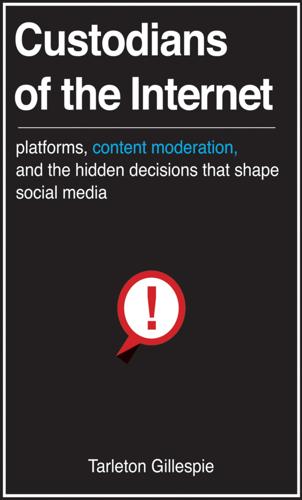
Custodians of the Internet: Platforms, Content Moderation, and the Hidden Decisions That Shape Social Media
by
Tarleton Gillespie
Published 25 Jun 2018
It is as if the sites can’t fully embrace the policing role they must play without reminding the reader of what the platform has to offer, in a language more suited to promotional material. Some simply preface the rules with a fluffy reminder of the platform’s value: “At Pinterest, our mission is to help you discover and do what you love. To make sure everyone has a great experience, we have a few guidelines and rules.” Others litter their guidelines with exclamation marks like an eager tween: “Welcome to the new Tagged Community! We want this to be a great place for you to find answers to any question you have about Tagged!

How I Found Freedom in an Unfree World: A Handbook for Personal Liberty
by
Harry Browne
Published 1 Jan 1973
The author also helps you anticipate the problems you'll face and suggests ways of dealing with them. Very easy to read. (Pocketbooks, ISBN 0-67173744-9, paperback, $4.95) WHAT DO YOU WANT? Wishcraft: How to Get What You Really Want by Barbara Sher, Annie Gottlieb. Getting what you really want will change your life. Your energy level will soar. Doing what you love will attract the people you want in your life. Barbara Sher lays out strategies for identifying what you want, and then finding and creating the life you want. An enjoyable and life-changing book. (Ballantine Books, ISBN 0-34534089-2, softcover, $12.00) Live Your Dream! by Joyce Chapman. The discussions and exercises in this book will help you uncover and pursue goals that bring you alive.
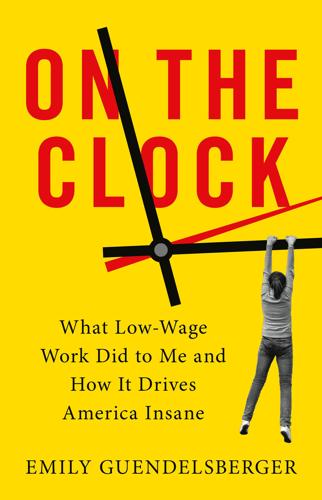
On the Clock: What Low-Wage Work Did to Me and How It Drives America Insane
by
Emily Guendelsberger
Published 15 Jul 2019
Stiglitz, Amartya Sen, and Jean-Paul Fitoussi Hand to Mouth: Living in Bootstrap America, Linda Tirado Why Zebras Don’t Get Ulcers, Robert Sapolsky Temp: How American Work, American Business, and the American Dream Became Temporary, Louis Hyman Private Government: How Employers Rule Our Lives (and Why We Don’t Talk About It), Elizabeth Anderson Labor and Monopoly Capital: The Degradation of Work in the Twentieth Century, Harry Braverman The New Ruthless Economy: Work and Power in the Digital Age, Simon Head Do What You Love: And Other Lies About Success and Happiness, Miya Tokumitsu HyperNormalisation (film), Adam Curtis On workplaces in this book The Everything Store: Jeff Bezos and the Age of Amazon, Brad Stone Fast Food, Fast Talk: Service Work and the Routinization of Everyday Life, Robin Leidner The Furniture Wars: How America Lost a Fifty Billion Dollar Industry, Michael K.
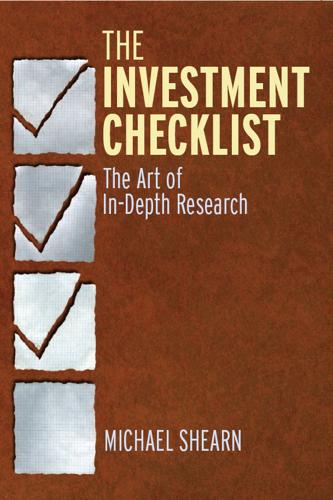
The Investment Checklist: The Art of In-Depth Research
by
Michael Shearn
Published 8 Nov 2011
Passion is a necessary ingredient for long-term success in business or any profession. If you have ever asked the advice of successful businesspeople on how to become successful, the most common advice you probably received was that you needed to find something you love to do and then do it. By doing what you love and getting very good at it, you’ll be happier, society will likely reward you, and the money will eventually follow. They probably counseled you to not go after a job for the money, and in fact, most people who have made a lot of money didn’t make that their primary goal. For example, when entrepreneurs create a business, they are usually following some passion.
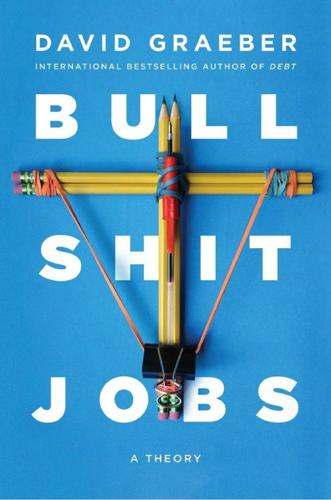
Bullshit Jobs: A Theory
by
David Graeber
Published 14 May 2018
But the flipside of that logic seems to be: if you actually like doing X activity, if it is valuable, meaningful, and carries intrinsic rewards for you, it is wrong for you to expect to be paid (well) for it; you should give it freely, even (especially) if by doing so you are allowing others to profit. In other words, we’ll make a living from you doing what you love (for free), but we’ll keep you in check by making sure you have to make a living doing what you hate. Shullenberger gave the example of translation work. Translating a paragraph or document from one language to another—particularly from a dry business document—is not a task that many people would do for fun; still, one can imagine some reasons people might do it other than the money.
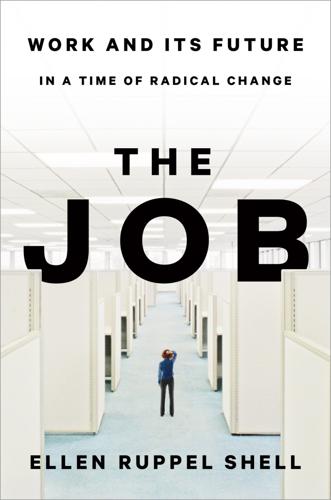
The Job: The Future of Work in the Modern Era
by
Ellen Ruppel Shell
Published 22 Oct 2018
A search of Google Books’ Ngram Viewer finds that the term follow your passion appeared nearly 450 times more frequently in 2008 than it did in 1980, when it was barely used at all. Think back to that scene in Girls where the heroine—a college graduate—gets turned down for a job frosting cupcakes because, well, she doesn’t express enough passion for frosting cupcakes. The skit is so funny because it rings so true. “Do what you love and you’ll never work another day in your life” is a sentiment we’ve all heard countless times. See, for example, Steve Jobs’s iconic commencement address at Stanford University: You’ve got to find what you love. And that is as true for your work as it is for your lovers. Your work is going to fill a large part of your life, and the only way to be truly satisfied is to do what you believe is great work.
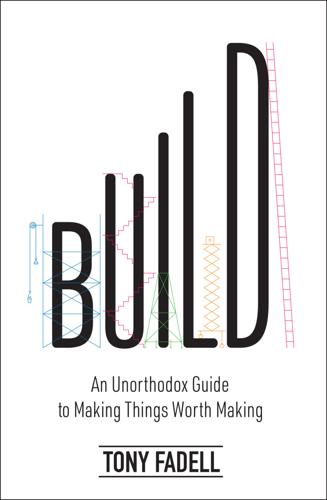
Build: An Unorthodox Guide to Making Things Worth Making
by
Tony Fadell
Published 2 May 2022
That’s the hole that many people fall into when they’re put in charge of a team. And some never climb out of it. Because once you’re a manager, you’re no longer an accountant. Or a designer. Or a fisherman. Or an artist. Or whatever it is you really enjoyed doing. I constantly have to remind people: If you’re doing what you loved in your old job, then you’re probably doing the wrong thing. You now lead a team of people doing what you used to be good at. So at least 85 percent of your time should be spent managing. If it’s not, then you aren’t doing it right. Managing is the job. And managing is hard. When I was CTO at Philips, my team put up one of those red flashing lights in the office—the old ones that used to be on police cars.
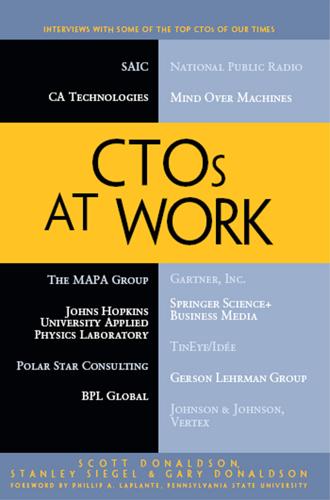
CTOs at Work
by
Scott Donaldson
,
Stanley Siegel
and
Gary Donaldson
Published 13 Jan 2012
But I thought even then that I would probably go to law school, because I didn't know what else to do. All I knew for sure, and I remember this clearly: I didn't want to go into computers as a career. I thought that making computers my job would ruin my love for them, would ruin my hobby. I tell you, I wasn't too smart about it! It took me a while to figure out, “Do what you love!” Fortunately, one day my father sent me a magazine advertisement of a computer by Seequa called the Chameleon. “Here's yet another new computer I've never heard of. Nothing interesting about that, but check out the address.” I was like, “Holy crap. I walk by this building every single day.
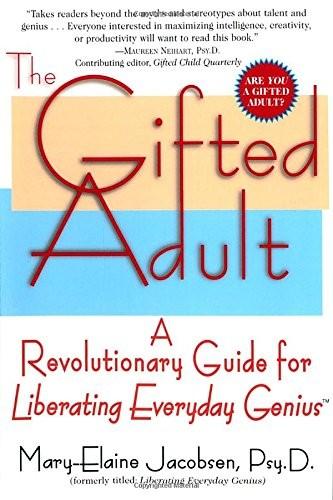
The Gifted Adult: A Revolutionary Guide for Liberating Everyday Genius(tm)
by
Mary-Elaine Jacobsen
Published 2 Nov 1999
Had he honestly answered standard “What do you want to be when you grow up?” questions he might have said: “Everything I have time for.” When his high-school guidance counselor tried to help him with career choices, Jordan, like others with Multiple Intelligences, found little use in the usual recommendations, such as “Do what you love” (because he could dive into nearly any topic with real enthusiasm) or “Do what you’re good at” (because he was better than most kids at nearly everything he tried). Like most Everyday Geniuses, Jordan never thought of himself as exceptional. He knew he had special talents and learned things quickly, but he was used to that and so was everyone he knew.
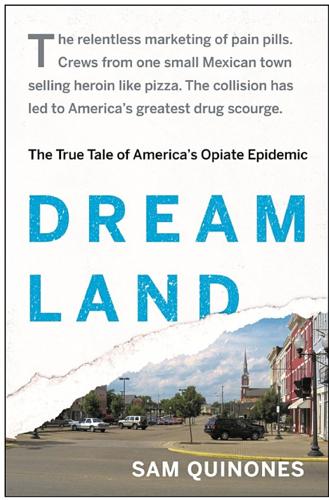
Dreamland: The True Tale of America's Opiate Epidemic
by
Sam Quinones
Published 20 Apr 2015
“All of a sudden, we can’t go to college without Adderall; you can’t do athletics without testosterone; you can’t have intimacy without Viagra. We’re all the time focused on the stuff and not on the people. I tell pain patients, ‘Forget all that; the treatment is you. Take charge of your life and be healthy and do what you love and love what you do.’” And he ignored that very advice. Cahana came to Seattle at 260 pounds, and gained forty-five more over the next five years as, stressed and overworked, he battled to rebuild the historic clinic. The clinic won numerous awards, was highlighted as a model. He was on CNN and in People magazine, gave a TED talk, and testified before the U.S.
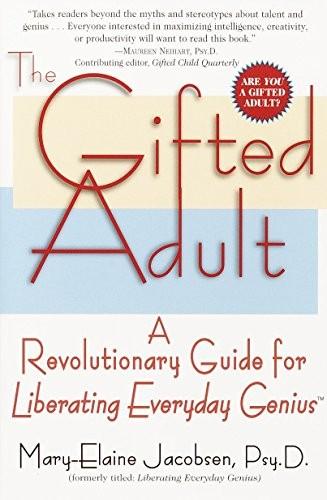
The Gifted Adult: A Revolutionary Guide for Liberating Everyday Genius(tm)
by
Mary-Elaine Jacobsen
Published 18 Feb 2015
Had he honestly answered standard “What do you want to be when you grow up?” questions he might have said: “Everything I have time for.” When his high-school guidance counselor tried to help him with career choices, Jordan, like others with Multiple Intelligences, found little use in the usual recommendations, such as “Do what you love” (because he could dive into nearly any topic with real enthusiasm) or “Do what you’re good at” (because he was better than most kids at nearly everything he tried). Like most Everyday Geniuses, Jordan never thought of himself as exceptional. He knew he had special talents and learned things quickly, but he was used to that and so was everyone he knew.

Make Your Own Job: How the Entrepreneurial Work Ethic Exhausted America
by
Erik Baker
Published 13 Jan 2025
On Cuddy’s career and the rise and fall of the power pose, see Susan Dominus, “When the Revolution Came for Amy Cuddy,” New York Times Magazine, October 18, 2017. 35Marisa Meltzer, Glossy: Ambition, Beauty, and the Inside Story of Emily Weiss’s Glossier (New York: One Signal, 2023), 101–102. 36Brooke Erin Duffy, (Not) Getting Paid to Do What You Love: Gender, Social Media, and Aspirational Work (New Haven, CT: Yale University Press, 2017), 44. See also Hester Eisenstein, Feminism Seduced: How Global Elites Use Women’s Labor and Ideas to Exploit the World (London: Routledge, 2015). 37Amoruso, #GIRLBOSS, 184–185. 38Amoruso, #GIRLBOSS, 11, 119, 197. 39Molly Young, “Be Bossy: Sophia Amoruso Has Advice for Millennials and a Bone to Pick with Sheryl Sandberg,” The Cut, May 26, 2014. 40Samhita Mukhopadhyay, “The Girlboss Is Dead.
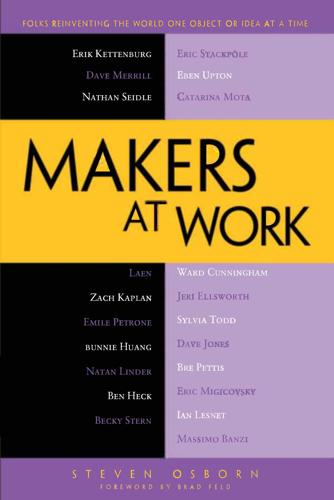
Makers at Work: Folks Reinventing the World One Object or Idea at a Time
by
Steven Osborn
Published 17 Sep 2013
I did get a medal from RoboGames. When I made the WaterColorBot. I got a silver medal. I lost by one point. I almost got the gold. I kind of wanted the silver though because it looked really cool. Steven: It sounds like your favorite project is really just doing what you do, making things, and doing videos. I guess doing what you love to do is a constant, continuous thing, not necessarily a one-time project, which is pretty awesome. Sylvia: Yeah, that fits. James:It’s always on to the next thing. When you do an episodic, nonserial show, you get a chance to do new stuff all the time. We have a giant box of kits that we’re always pulling from to do the next interesting thing, and we’re always trying to come up with something cool for it every time.
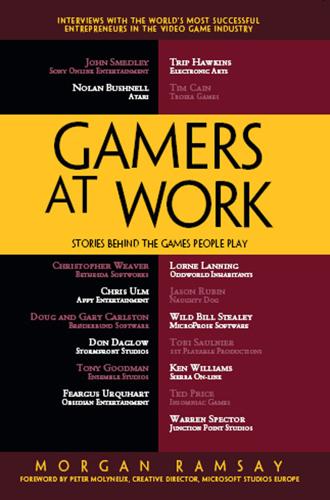
Gamers at Work: Stories Behind the Games People Play
by
Morgan Ramsay
and
Peter Molyneux
Published 28 Jul 2011
At Appy, the Wild West aspects of the digital retail business model and the inherent product unknowns in building successful game apps are challenges that often require the mind of a student. Sometimes experience can send you down the wrong path if you’re not careful. Ramsay: What advice do you have for the entrepreneurs out there? Ulm: Do what you love. Be patient with yourself and your team. Don’t make the same mistake twice. Most importantly, share whatever success you are able to achieve with the people that made it possible. Tobi Saulnier Founder, 1st Playable Productions When Activision acquired Vicarious Visions, where Tobi Saulnier was vice president of product development, she left the company.
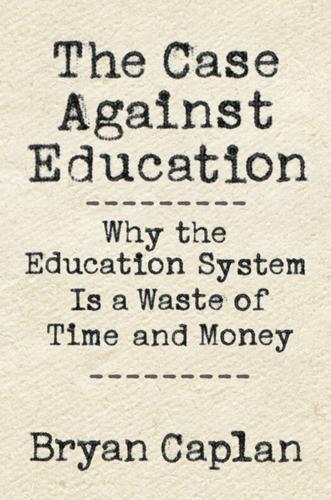
The Case Against Education: Why the Education System Is a Waste of Time and Money
by
Bryan Caplan
Published 16 Jan 2018
Anyone who calls Japanese comic books and old movies “useless” should check their double standard. How are comic books and movies any more useless than poems and plays? All else equal, of course, exposing students to plausible careers is better than exposing them to mere hobbies. To live the adage “Do what you love, and you’ll never work a day in your life,” students must learn what lovable jobs are available. Give students numerous, diverse, yet realistic options. Start with the Bureau of Labor Statistics’ figures on “employment by major occupational group” and “occupations with the most job growth.”67 Expose boys to nursing.
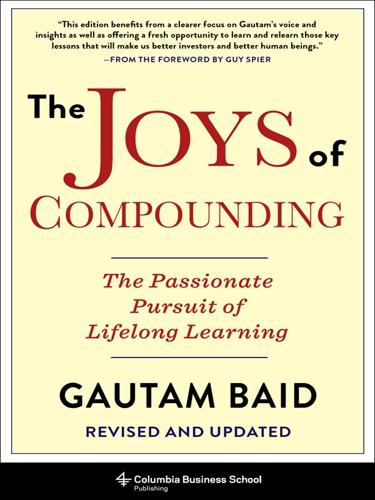
The Joys of Compounding: The Passionate Pursuit of Lifelong Learning, Revised and Updated
by
Gautam Baid
Published 1 Jun 2020
It is great to be passionate in life, but it is wise to be so only for things that are under our control, or else we risk being dejected because of unfavorable outcomes. Value investors derive satisfaction from the mental process of investing and from the learnings embedded in the outcomes. Those who love the process end up with results naturally, unlike others who worship only outcomes. The only way to gain an edge is through long and hard work. Do what you love to do, so you just naturally do it or think about it all the time, even if you are relaxing…. Over time, you can accumulate a huge advantage if it comes naturally to you like this [emphasis added]. —Li Lu Buffett has always held the opinion that the people who discover their passion in life are lucky.
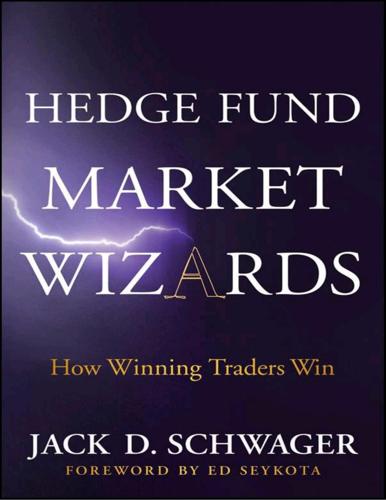
Hedge Fund Market Wizards
by
Jack D. Schwager
Published 24 Apr 2012
It has gotten harder for me, but that may only be because I am older and less interested, and have more money, which makes me less motivated. Do you have any advice for someone who wanted to pursue the markets as a challenge? The approach that worked for me was the title of a book written much later by my ex-sister-in-law, Do What You Love and the Money Will Follow. Anything else? Try to figure out what your skill set is and apply that to the markets. If you are really good at accounting, you might be good as a value investor. If you are strong in computers and math, you might do best with a quantitative approach. Gambling and investing may not sound like they have much in common, but to Thorp they were quite similar—they were both probability-based games for which the problem of finding an edge could be solved analytically, even though such a solution was widely assumed not to exist for either.
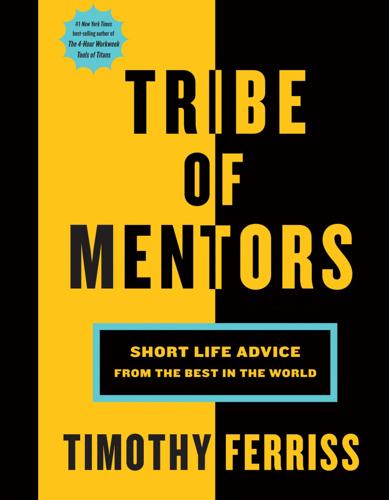
Tribe of Mentors: Short Life Advice From the Best in the World
by
Timothy Ferriss
Published 14 Jun 2017
I was always pretty good at making the technical correction, but I’ve improved two things quite a bit in recent years: finding the thematic or psychological lesson hidden in the technical error (which hugely amplifies the ensuing growth), and having a sense of the beauty and potency of how the loss is actively improving me while I’m still in the thick of the pain of the blow. What advice would you give to a smart, driven college student about to enter the “real world”? Do what you love, do it in a way that you love, and pour your heart and soul into every moment of it. Do not be subject to inertia. Challenge your assumptions and the assumptions of those around you as a way of life. Notice how you are unconsciously fighting to maintain your conceptual scheme even as it mires you in quicksand and immense pain.
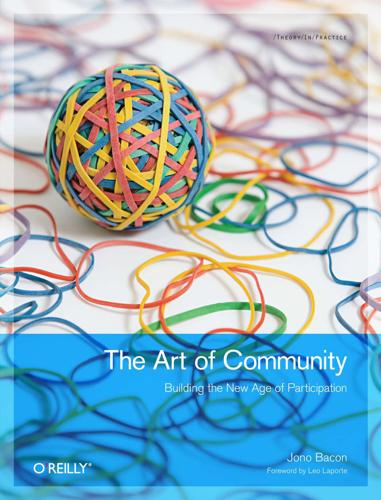
The Art of Community: Building the New Age of Participation
by
Jono Bacon
Published 1 Aug 2009
To me, the real excitement comes from a true artist-fan connection. A movement. A culture. That’s where the magic is. If you work hard to improve your craft, and care deeply about the integrity of your art, I think you have a good shot. I believe if you make something good, success will follow. “Success” doesn’t just mean money, by the way. Doing what you love to do—and being able to live a comfortable lifestyle while doing it—is a great gig. Mårten Mickos, MySQL and Eucalyptus Mårten Mickos was the CEO of MySQL AB, was senior vice president of the database group at Sun Microsystems, is a member of the board of Mozilla Messaging and RightScale, and Entrepreneur In Residence at Benchmark Capital.
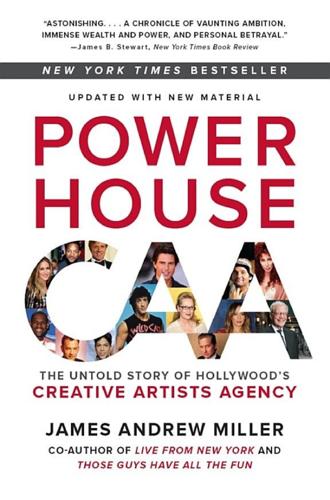
Powerhouse: The Untold Story of Hollywood's Creative Artists Agency
by
James Andrew Miller
Published 8 Aug 2016
I’m a big believer in 90 percent of new business happens after office hours, so there’s an edict in our department that you should be out every night. That’s where you find new business and you meet new people. We are all trying to be in the right place at the right time, to create new opportunities for our clients. To be able to do what you love—I’m the luckiest man in New York City. ERIC WATTENBURG, Agent: When I came to CAA, one of the things they kept telling me about was how culturally this place was not like anywhere I’d ever worked. I’d only worked at two other places, William Morris and then a small agency called N. S. Bienstock.
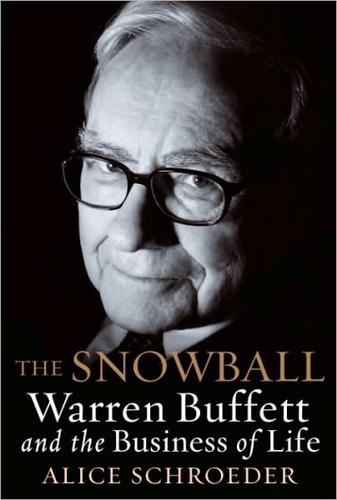
The Snowball: Warren Buffett and the Business of Life
by
Alice Schroeder
Published 1 Sep 2008
“People ask me where they should go to work, and I always tell them to go to work for whom they admire the most,” he said. He urged them not to waste their time and their life. “It’s crazy to take little in-between jobs just because they look good on your résumé. That’s like saving sex for your old age. Do what you love and work for whom you admire the most, and you’ve given yourself the best chance in life you can.” They asked him what mistakes he had made. Number one was Berkshire Hathaway, he said—spending twenty years trying to revive a failing textile mill. Second, US Air. Buffett spoke of his failure to call the Air-aholic hotline beforehand.